JOIN THE REALM
The Realm is our church's online network. We use this tool as our primary means of communication. To request an invitation, send an email to [email protected] .
- Times & Locations
- The Leadership
- What We Believe
- Foundation Documents
- Our Association
- Upcoming Events
- Gospel Community Groups
- An Introduction To The Christian Faith
- Bible Reading Plan
- Baptist Catechism
- Catechism For Girls And Boys
- Confession of Faith
- Household Worship Guide
- Pastor's Blog
- Recommended Resources
- Serve the Church
- Serve the Community
- Ministry to Children
- Ministry to Youth
- Ministry to Parents
- Ministry to Men
- Ministry to Women
- Home Missions
- World Missions

Emmaus is a Reformed Baptist church in Hemet, California. We are a community of Christ followers who love God, love one another, and serve the church, community, and nations, for the glory of God and for our joy.
Our hope is that you will make Emmaus your home and that you will begin to grow with us as we study the scriptures and, through the empowering of the Holy Spirit, live in a way that honors our great King.
LORD'S DAY WORSHIP (SUNDAYS) 10:00am Corporate Worship In the Emmaus Chapel at Cornerstone 26089 Girard St. Hemet, CA 92544
EMMAUS ESSENTIALS Sunday School For Adults 9:00am to 9:45am most Sundays ( Schedule ) In the Chapel
MAILING ADDRESS 43430 E. Florida Ave. #F329 Hemet, CA 92544

Join The Realm
The Realm is our church's online network. We use this tool as our primary means of communication. Be sure to check it often and don't hesitate to contact us if you have any questions.
Interested in becoming a member? Please join us for a four-week study in which we will make a case from the scriptures for local church membership and introduce the ministries, government, doctrines, and distinctive's of Emmaus Reformed Baptist Church.
- Sermon Audio Archive
- iTunes Feed
- Sermon Manuscripts
Emmaus Essentials
Emmaus Essentials classes are currently offered online Sundays at 9AM. It is through our Emmaus Essentials (Sunday School) that we hope to experience an in depth study of the scriptures and Christian theology. These classes focus on the study of systematic theology, biblical theology, church history, and other topics practical to Christian living.
An audio teaching series through the Baptist Catechism aimed to instruct in foundational Christian doctrine and to encourage obedience within God’s people.
- Theology In Particular
A podcast produced for International Reformed Baptist Seminary: a forum for discussion of important scriptural and theological subjects by faculty, administrators, and friends of IRBS.
- Confessing The Faith
A podcast devoted to discussions concerning Christian doctrine and the Christian life from a confessionally Reformed Baptist perspective.
Know The Truth
A thirty-nine lesson study through “Know the Truth, A Handbook of Christian Belief” by Bruce Milne.
The Reformed Reading Group meets once a month to discuss biblically sound and theologically significant books from a confessionally Reformed perspective.
An Intoduction To The Christian Faith
A fourteen-week Bible study in which we consider “what man ought to believe concerning God, and what duty God requireth of man” (Baptist Catechism #6).
Emmaus Resources
Family based ministry.
At Emmaus we believe that God has given parents, especially fathers the authority and responsibility to train and instruct children up in the Lord. In addition, we believe that God has ordained the gathering of all generations, young to old, to worship Him together in one place and at one time. Therefore, each and every Sunday our children worship the Lord alongside their parents and other members of God’s family.
The scriptures tell us to “do good to everyone, and especially to those who are of the household of faith” (Galatians 6:10). Jesus tells us, “by this all people will know that you are my disciples, if you have love for one another” (John 13:35). Our desire is to serve the church, community, and nations with the love of Christ.
Please explore these linked pages to find out how to get involved.
Emmaus Reformed Baptist Church is committed to the fullfilment of the Great Commision given by our Lord when he said, "All authority in heaven and on earth has been given to me. Go therefore and make disciples of all nations, baptizing them in the name of the Father and of the Son and of the Holy Spirit, teaching them to observe all that I have commanded you. And behold, I am with you always, to the end of the age" (Matthew 28:18-20 ESV), through the planting of local churches, both at home and abroad.
Sermon: Jesus’ Journey to the Cross: Difficult, Lonely, Necessary: John 18:12-27
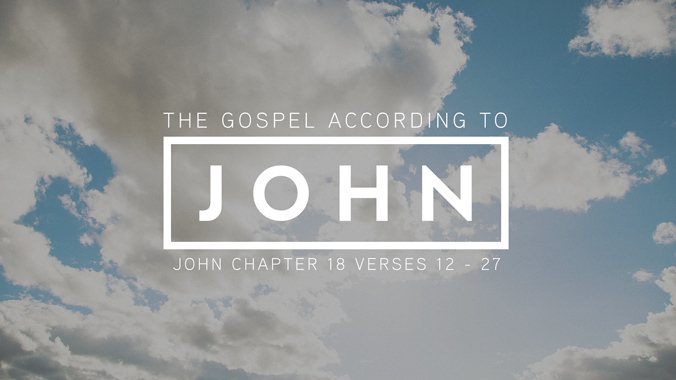
View All Sermons
Old Testament Reading: Isaiah 50:4-11
[This is the third of four Servant Songs, which anticipate the Messiah… This song focuses on the servant as a rejected prophet. (ESV Study Bible)]
“The Lord God has given me the tongue of those who are taught, that I may know how to sustain with a word him who is weary. Morning by morning he awakens; he awakens my ear to hear as those who are taught. The Lord God has opened my ear, and I was not rebellious; I turned not backward. I gave my back to those who strike, and my cheeks to those who pull out the beard; I hid not my face from disgrace and spitting. But the Lord God helps me; therefore I have not been disgraced; therefore I have set my face like a flint, and I know that I shall not be put to shame. He who vindicates me is near. Who will contend with me? Let us stand up together. Who is my adversary? Let him come near to me. Behold, the Lord God helps me; who will declare me guilty? Behold, all of them will wear out like a garment; the moth will eat them up. Who among you fears the Lord and obeys the voice of his servant? Let him who walks in darkness and has no light trust in the name of the Lord and rely on his God. Behold, all you who kindle a fire, who equip yourselves with burning torches! Walk by the light of your fire, and by the torches that you have kindled! This you have from my hand: you shall lie down in torment.” (Isaiah 50:4–11, ESV)
New Testament Reading: John 18:12-27
“So the band of soldiers and their captain and the officers of the Jews arrested Jesus and bound him. First they led him to Annas, for he was the father-in-law of Caiaphas, who was high priest that year. It was Caiaphas who had advised the Jews that it would be expedient that one man should die for the people. Simon Peter followed Jesus, and so did another disciple. Since that disciple was known to the high priest, he entered with Jesus into the courtyard of the high priest, but Peter stood outside at the door. So the other disciple, who was known to the high priest, went out and spoke to the servant girl who kept watch at the door, and brought Peter in. The servant girl at the door said to Peter, ‘You also are not one of this man’s disciples, are you?’ He said, ‘I am not.’ Now the servants and officers had made a charcoal fire, because it was cold, and they were standing and warming themselves. Peter also was with them, standing and warming himself. The high priest then questioned Jesus about his disciples and his teaching. Jesus answered him, ‘I have spoken openly to the world. I have always taught in synagogues and in the temple, where all Jews come together. I have said nothing in secret. Why do you ask me? Ask those who have heard me what I said to them; they know what I said.’ When he had said these things, one of the officers standing by struck Jesus with his hand, saying, ‘Is that how you answer the high priest?’ Jesus answered him, ‘If what I said is wrong, bear witness about the wrong; but if what I said is right, why do you strike me?’ Annas then sent him bound to Caiaphas the high priest. Now Simon Peter was standing and warming himself. So they said to him, ‘You also are not one of his disciples, are you?’ He denied it and said, ‘I am not.’ One of the servants of the high priest, a relative of the man whose ear Peter had cut off, asked, ‘Did I not see you in the garden with him?’ Peter again denied it, and at once a rooster crowed.” (John 18:12–27, ESV)
“The grass withers, the flower fades, but the word of our God will stand forever.” (Isaiah 40:8, ESV)
Introduction
Today is Palm Sunday, isn’t it? On it we mark the triumphal entry of Jesus into Jerusalem. This Friday is Good Friday. It is on that day that we remember the death of our Lord. And next Sunday is resurrection Sunday. On it we remember the resurrection of Jesus from the dead. Put it all together and we have, what some call, a holy week. I am not opposed to giving attention to these days. And I am not even opposed to calling this week a “holy week”. But we should take care to remember that, according to the scriptures, it is not a holy week that we are to observe, but a holy day, also known as the Lord’s Day, or the Christian Sabbath. And is not once per year that we are to remember the death, burial, and resurrection of our Lord, but weekly as we gather together in fellowship and give ourselves to the word, to prayers, to singing, and to the breaking of the bread. These are the things that Lord has ordained.
This is why I do not feel obligated to preach a traditional Palm Sunday, Good Friday, and Resurrection Sunday sermon every year. The culture expects it, I know. But it is not mandated by scripture. And notice that where we are in our study of the gospel of John makes it difficult to preach a Palm Sunday, Good Friday, and Resurrection Sunday message. The problem is that we are very near to each one of these events in John’s gospel, but we are not completely aligned. Jesus’ triumphal entry was communicated to us in John 12:12. From there we have encountered Jesus’ interaction, primarily with his disciples, in the week leading up to his crucifixion. He will be crucified in chapter 19, and we will hear of his resurrection in chapter 20. And so we are in the thick of it, aren’t we? And yet things are not perfectly aligned. If we were in, let’s say, chapter 5, I might consider breaking from John to preach three sermons on the events that transpired in the week of Jesus’ suffering. But because we are in the thick of it, I have decided to simply press on through John’s gospel.
In chapter 18 we encounter Jesus on the way to the cross. I suppose it could be said that Jesus was always on the way to the cross. The cross was always his goal. He came to die for those given to him by the Father from all the world. This we know well. But it is here in John 18 that things accelerate. He is not walking to the cross, but being dragged to it. At least that it how it looks from a human perspective. We know that he was not in fact dragged to the cross. He went willingly in full submission to the will of the Father. The point is that things progress quickly from here. Jesus will be in the grave less than 24 hours from the events narrated in John 18.
And what can we say about Jesus’ journey to the cross? Three observations seem import to me.
Jesus’ Journey to the Cross was Difficult
First of all, it should be acknowledge that Jesus’ journey the cross was difficult. This might seem so obvious that it is hardly worth saying, but I think it is good that we consider carefully the difficulty of Jesus’ journey.
I suppose it can be said that the whole of Jesus’ life was difficult. He was born in poverty. He was constantly opposed. Members of his own family did not at first believe in him. He was often a man on the run. The whole of Jesus’ life was characterized by difficulty. But here I wish to emphasize that Jesus’ final journey to the cross was exceptionally difficult.
We speak often of the fact that Jesus came to die for sinners. But notice that the death he died was not, what we would call, a natural death. He did not die of natural causes . He did not grow old for us. He did not succumb to illness for us. His life was not ended by way of, what we would call, an accident . No, he was put to death by sinful men.
There is a great deal of irony in John 18 and 19, and it is good that we recognize it.
Isn’t it ironic, for example, that it is was the Jews who pushed for the crucifixion of Christ? Later we will see that it was the Romans who carried it out. The Romans were certainly involved in the false trial, mistreatment, and the unjust killing of Jesus. In the end we must admit that all of humanity is represented here. Jew and gentile alike were involved in the killing of the Christ. But it was the Jewish people who pushed for it. And it is ironic, for Jesus was their Messiah. Of course he is the Savior of all people. Salvation is found in him, and in him alone. But he was the Messiah that the Jews had long been looking for. He came, and they put him to death.
John began his Gospel by making note of this irony. John 1:9 says, “The true light, which gives light to everyone, was coming into the world. He was in the world, and the world was made through him, yet the world did not know him. He came to his own, and his own people did not receive him. But to all who did receive him, who believed in his name, he gave the right to become children of God…” (John 1:9–12, ESV)
As we consider Jesus’ journey to the cross – the false trial, the brutality, the crucifixion itself – we should be struck by the irony. Here is Jesus, the eternal Word of God come in the flesh, the one through whom and for whom the universe was made, the giver and sustainer of life. He comes to man, not to judge, mind you, but to accomplish salvation. And what does man do with him? Their natural impulse is to kill him. Oh, how dark we are apart from the grace of God!
Isn’t it also ironic that it was the high priest who condemned Jesus to death? Jesus was first brought before Annas. Verse 13 says, “….for he was the father-in-law of Caiaphas, who was high priest that year.” (John 18:13, ESV) Annas was actually the high priest before Caiaphas was. Some passages in the New Testament suggest that both Annas and Caiaphas were high priest at the same time (see Luke 3:2 and Acts 4:6). The reason for this is that Annas was high priest first and then Caiaphas, but Annas was still called by that title, though he no longer officially held the position. Why Jesus was first sent to Annas we do not know for sure. But the point is that Jesus stood before the man who had been high priest and who was still honored as such. From there he was sent to stand before Caiaphas who was in fact the high priest.
We should pause for a moment to think about the significance of the high priestly office. Why did that office exist? What role did the hight priest play within Old Covenant Israel?
Much could be said about this. For now I would simply draw your attention to the fact that the high priest was to serve as a kind of mediator between God and man. The high priest was to pray to God on behalf of the people, and to offer up sacrifices to God for the people. It was the high priest who would go once a year into the Holy of Holies to make atonement for his sins and for the sins of the people. And the thing to remember and not forget is that the priesthood of the Old Covenant was temporary and typological. By temporary I mean that the priesthood would continue in it’s Old Covenant form only until the high priest would come. And who is that high priest? He is Christ Jesus our Lord! By typological I mean that the priesthood, along with the sacrifices that they administered, were intended to serve as types, shadows, pictures, or symbols, which pointed forward to the priest who would make the sacrifice which would actually, really, and fully atone for sins. Again, this is Christ Jesus our Lord.
Listen to the book of Hebrews in 3:1: “Therefore, holy brothers, you who share in a heavenly calling, consider Jesus, the apostle and high priest of our confession, who was faithful to him who appointed him, just as Moses also was faithful in all God’s house.” (Hebrews 3:1–2, ESV) Listen to 4:14: “Since then we have a great high priest who has passed through the heavens, Jesus, the Son of God, let us hold fast our confession. For we do not have a high priest who is unable to sympathize with our weaknesses, but one who in every respect has been tempted as we are, yet without sin.” (Hebrews 4:14–15, ESV) If I had the time I would read to you Hebrews chapter 5 on through to the end of chapter 13, for that is theme! Jesus is the true high priest who has made true atonement for sins! Listen to Hebrews 9:11-12, and then we will move on.“But when Christ appeared as a high priest of the good things that have come, then through the greater and more perfect tent (not made with hands, that is, not of this creation) he entered once for all into the holy places, not by means of the blood of goats and calves but by means of his own blood, thus securing an eternal redemption.” (Hebrews 9:11–12, ESV)
So picture Caiaphas the high priest of Israel and Jesus standing before him. Don’t you find it ironic that, though the office he held was intended to serve as a kind of placeholder until the true high priest would come – and though the work he did was packed with typological and symbolic significance which pointed forward to the true lamb of God who would take away the sins of the world – when the true high priest, who is also the true lamb of God, stood before him, he did not recognize him. Caiaphas didn’t get it. Not even close. He was arrogant, unjust, and ignorant. He was ignorant as to the true significance of the position he held. He was ignorant as to the significance of the man who stood before him. And he was ignorant as to the significance of the moment.
And so how did Caiaphas handle Jesus? It’s interesting that John does not provide us with as much detail as Matthew does concerning Jesus’ trial before Caiaphas. John simply reminds us of something that had been mentioned earlier in his Gospel, namely that “it was Caiaphas who had advised the Jews that it would be expedient that one man should die for the people.” (John 18:14, ESV)
This is to remind us of what was said in John 11. Remember that at this point people were taking notice of Jesus because of the signs he was preforming. The religious authorities were troubled by this, so they gather together to discuss how to deal with Jesus. Their fear was that, “If [they] let him go on like this, everyone [would] believe in him, and the Romans [would] come and take away both [their] place and [their] nation.” (John 11:48, ESV) We were told that “one of them, Caiaphas, who was high priest that year, said to them, ‘You know nothing at all. Nor do you understand that it is better for you that one man should die for the people, not that the whole nation should perish.”” (John 11:49–50, ESV) In other words, it is better that we put this Jesus to death rather than risk the Romans growing upset with us and coming down hard on the nation. How did John interpret these words of Caiaphas? He tells us in 11:51 saying, “[Caiaphas] did not say this of his own accord, but being high priest that year he prophesied that Jesus would die for the nation, and not for the nation only, but also to gather into one the children of God who are scattered abroad. So from that day on they made plans to put him to death.” (John 11:51–53, ESV)
So here is the irony. Caiaphas was high priest. One of his responsibilities was to offer up sacrifices to God on behalf of the people for the forgiveness of sins. This he in fact did. He offered up Jesus, the Lamb of God, who takes away the sins, not only of the Jews, but of all the peoples of the earth. He did so in ignorance and in sin. But he did it according to the definite plan and foreknowledge of God.
Jesus’ journey was a difficult one, that is the point. He was falsely accused, falsely tried, and mistreated. By the way, can you imagine being the guy who slapped Jesus when he answered back to Caiaphas? Imagine being that guy! He slapped Jesus! And for what? Jesus simply replied to Caiaphas’ questions about his teaching saying, “‘I have spoken openly to the world. I have always taught in synagogues and in the temple, where all Jews come together. I have said nothing in secret. Why do you ask me? Ask those who have heard me what I said to them; they know what I said.’ When he had said these things, one of the officers standing by struck Jesus with his hand, saying, ‘Is that how you answer the high priest?’” (John 18:20–22, ESV) How blind these men were to the reality of things.
Jesus’ journey to the cross was indeed a difficult one. We tend to emphasize the physical suffering he endured (and it is true that he suffered in the flesh) but consider the emotional, the psychological, the spiritual aspect of all this. Think of the humility, the restraint, the submission to the Father that Jesus maintained in order to accomplish the Father’s will. He suffered for you and me and for all who believe. Thanks be to God.
Jesus’ Journey to the Cross was Lonely
Consider also the loneliness of Jesus’ journey. His journey to the cross was a lonely one.
Here I wish only to emphasize the fact that Jesus walked this difficult road alone.
Judas had already betrayed him. This we have seen.
And where are the majority of the eleven who remained? Most of them have all scattered, haven’t they? What Jesus predicted came true. He said to them in John 16:32, “Behold, the hour is coming, indeed it has come, when you will be scattered, each to his own home, and will leave me alone.” (John 16:32, ESV) This is what happened.
Notice that Peter followed Jesus. I suppose he should be commended for this. He did have the courage to follow Jesus. But do you remember the conversation that Jesus had with Peter in the upper room after he washed the disciples feet? “Simon Peter said to him, ‘Lord, where are you going?’ Jesus answered him, ‘Where I am going you cannot follow me now, but you will follow afterward.’ Peter said to him, ‘Lord, why can I not follow you now? I will lay down my life for you.’” (John 13:36–37, ESV) Peter claimed to be willing to follow Jesus to the point of death. And his actions revealed that he was serious about that. What did he do when Judas let that band of soldiers into the garden? He drew his sword and started swinging! He displayed courage, did he not? But it was an ignorant courage – a misguided courage. He insisted on walking the road with Jesus when Jesus had already made it clear that he could not. When Jesus was dragged before Annas and Caiaphas, Peter was there. This was risky, wasn’t it? He was putting his life at risk. He was courageous. But again, it was an ignorant courage.
Evidently Peter was still struggling to understand Christ’s mission, wouldn’t you agree? He could not, at this time, understand the way of the cross. He could not comprehend that victory would come to Jesus by way of suffering and death.
He walk with Jesus for a while, didn’t he? But eventually he hit a will. Peter, being questioned three times, denied our Lord three times. This was to fulfill what Christ had predicted. In John 13 “Jesus answered [Peter], ‘Will you lay down your life for me? Truly, truly, I say to you, the rooster will not crow till you have denied me three times.’” (John 13:38, ESV) This is what happened.
I’d like to show you something interesting about the story of Peter’s denial in John 18, if you are willing to listen. Matthew, Mark, and Luke all tell the story of Peter’s denial. But, as is often the case, they provide more detail than does John. They tell us more about what was asked of Peter by his accusers. They also tell us more about what Peter said when he denied Jesus. Mark, in particular, suggests that Peter grew more and more adamant in his denial with each question asked to the point of “[invoking] a curse on himself [saying], ‘I do not know this man of whom you speak.’” (Mark 14:71, ESV)
But what does John emphasize? How does he portray Jesus’ denial? He tells us that Peter denied Christ three times with the simple words, “I am not”. Verse 17: “The servant girl at the door said to Peter, ‘You also are not one of this man’s disciples, are you?’ He said, ‘I am not.’” (John 18:17, ESV) Verse 25, “Now Simon Peter was standing and warming himself…” (By the way, notice the repetition of this theme. Twice it is mentioned that Peter was warming himself by the fire. This may suggest that Peter was concerned about his own comfort in contrast to Christ’s selfless suffering. But it might also be an allusion to the Isaiah 50 passage that I read at the beginning, especially verse 11. I’ll leave that to you to ponder) But as they stood around the fire “they said to [Peter], ‘You also are not one of his disciples, are you?’ He denied it and said, ‘I am not.’” (John 18:25, ESV) This happened a third time, and then the roster crowed.
So why is it significant that John’s simply uses the words “I am not” to describe Peter’s denial of Jesus, whereas the other Gospels tell us more? Think with me for a moment. How has Jesus identified himself throughout the Gospel of John? Has he not consistently referred to himself by the words “I am”? “I am the door”; “I am the bread of life”. “I am the light of the world”. “Before Abraham was, I am”, and so on. And even in the immediate context we see that when Judas and the soldiers came to find Jesus in the garden and said that it was Jesus of Nazareth that they were seeking, how did he respond except with the words “I am”? In the english it is “I am he”, but in the greek it is simply ἐγώ εἰμι – “I am”.
So that is the pattern in John. Jesus consistently reveals himself as the “I am”. Clearly this alludes to the divine name given to Moses at the burning bush, but it also communicates that Jesus is the one. He is the anointed one, the long awaited Messiah. He alone is the one who can atone for sins.
Tell me this, church. How has Peter been acting up to this point? He has been acting as if he is. He has been acting as if he could contribute to Christ’s work – as if he could walk with Christ, and even die with Christ. He at first would not let Jesus wash his feet. He claimed to be willing to die with Jesus. He drew his sword and began to fight. And he followed Jesus to Caiaphas’ headquarters. Courages? Indeed! But oh so misguided.
It is here that Peter finally comes to an end of himself. His flesh could take him so far, but he could go no further. He finally admits “I am not.”
Jesus’ Journey to the Cross was Necessary
Brothers and sisters, Jesus’ journey to the cross was indeed difficult and lonely (he was abandoned by men, but the Father was with him), but it was necessary. Only he could make the journey. Only he could walk that road and drink the cup that the Father had given him to drink. He was uniquely called, uniquely anointed, and uniquely qualified to suffer and die and rise again on the third day for your sins and mine, and for all who trust in him in every age, and in every place.
There is one other figure in this passage that we have not talked about yet and we should do so briefly before we conclude. Look at verse 15. It says, “Simon Peter followed Jesus, and so did another disciple . Since that disciple was known to the high priest, he entered with Jesus into the courtyard of the high priest…” (John 18:15, ESV) Who do you think this other disciples is? Certainly this is John! He never names himself in his Gospel, but he appears in the narrative from time to time. Here he is called “another disciple”. In John 20 he is called “the other disciple”. He is the one who outruns Peter to the tomb. In John 21 he is “the disciple whom Jesus loved”. He is always appearing anonymously and as a kind of contrast to Peter.
Why? It seems to me that John, though he, like Peter, was willing to follow Jesus (he did not deny like Judas nor run away like the other nine) he followed in the right way . He followed, not in an attempt to rescue Jesus, and not in an attempt add anything to the work of Christ, as if that were possible. No, he simply followed and observed. He watched Jesus do the work that only Jesus could do. John, unlike Peter at this point in his life, was willing to be served by Jesus. He was willing to be loved by Jesus. That was his boast! Not that he loved Jesus, but that Jesus loved him, and gave himself up for him through his death on the cross.
Conclusion
This seems to me to be the most crucial question of all. Will you have Jesus as your crucified Lord? Will you allow Jesus to serve you? Will you confess that you are needy – not able to add a thing to the work of Christ, but only able to receive that which he has graciously provided for you through his death, burial, and resurrection?
This is how we must come to Christ. We must repent and believe upon Jesus. We must come to terms with our need and cast ourselves complexly at the feet of Jesus, trusting in him alone for the forgiveness of sins. And brothers and sisters, this is what we must do throughout the Christian life in every circumstance. We must confess our need – confess our brokenness – and run to Jesus who is the author and perfecter of our faith.
Posted in Sermons Joe Anady John 18:12-27 Comments Off on Sermon: Jesus’ Journey to the Cross: Difficult, Lonely, Necessary: John 18:12-27 Posted by Joe
Comments are closed.

"Him we proclaim, warning everyone and teaching everyone with all wisdom, that we may present everyone mature in Christ." (Colossians 1:28, ESV)
Notice: All forms on this website are temporarily down for maintenance. You will not be able to complete a form to request information or a resource. We apologize for any inconvenience and will reactivate the forms as soon as possible.

Jesus’ Journey to the Cross
- March 26, 2024
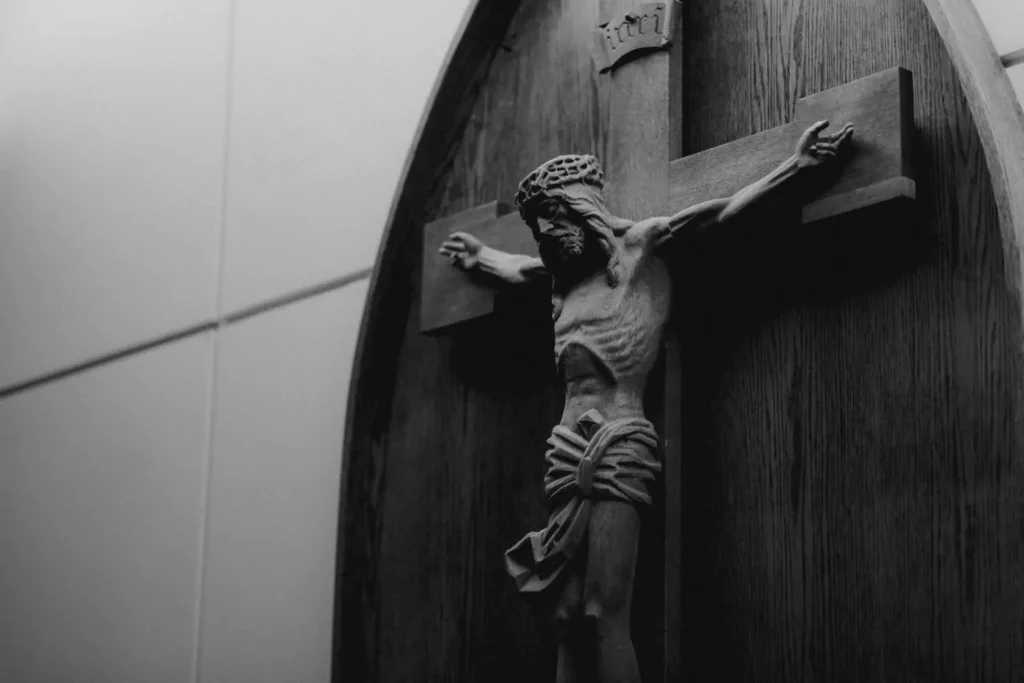
“Now is my soul troubled. And what shall I say? ‘Father, save me from this hour’? But for this purpose I have come to this hour.” ( John 12:27 )
I remember being 11 or 12 years old sitting in the back seat of the car headed to my grandma’s house for Easter weekend. Over the course of the eight-hour trip, I would open my Bible and follow Jesus through the dusty roads of Jerusalem, trying to figure out the corresponding times of His trials as He walked determinedly to the cross. I imagined myself tagging behind the faithful women who followed Jesus — witnessing the arrest, trials, torture and eventual crucifixion. And of course, I would imagine myself with Mary as she approached the tomb that Sunday morning, stricken with grief, only to become the first person to whom the resurrected Savior would speak.
I wanted to experience it, breathe it, see it.
Friends, remembering and observing Holy Week allows each of us to accompany Jesus on His journey to the cross. While we couldn’t be there physically, the account in Scripture invites us to meditate on the gravity of these somber events. The following are some of the “jewels” I’ve gathered from my meditations on Holy Week.
Our Savior is well-acquainted with sorrow.
Just turn on the evening news for five minutes and you’ll see the utter brokenness of this world. In addition to the world’s troubles, we each have our own heartaches and crushing burdens to bear. What would our Savior, who’s seated in majesty at the right hand of God, know of our suffering?
Everything.
Because He lived it. And during that week approaching His death, I believe He experienced suffering at an intensity we cannot comprehend.
The Gospels record Jesus saying that His soul was troubled to the point of death as He thought about sacrificing himself for us. He expressed this sorrow and suffering to His disciples when He asked them to stay awake and pray with Him ( Matthew 26:38 ).
Rejection, abandonment, spiritual oppression and physical pain were all experienced by Jesus that Passover week. Our High Priest knows our sorrow because He experienced far worse.
Our Savior deeply loves us.
Our Savior went willingly to His torture and death. He knew He’d die for us. Though His soul was troubled, Jesus was still willing to die for us, calling it His purpose, and even saying, “Father, glorify your name” ( John 12:27-28 ).
It wasn’t easy for Jesus to die on the cross. Yet he did.
Scripture tells us Jesus understood His death was for our benefit. During the Last Supper, Jesus described His body as being broken for us and His blood as being poured out for us. ( Luke 22:19-20 ) He died for us. “Greater love has no one than this, that someone lay down his life for his friends” ( John 15:13 ).
Death is a defeated enemy.
Friends, can you imagine the tension when all of heaven and earth held its breath after Jesus was placed in that tomb? That Sunday morning, a divine promise made thousands of years ago was about to be fulfilled.
I will put enmity between you and the woman, and between your offspring and her offspring; he shall bruise your head, and you shall bruise his heel. ( Genesis 3:15 )
Jesus’ heel had been bruised, but in this moment, He delivered the deadly blow to the serpent’s head. Through His obedient death and subsequent resurrection, Christ disarmed Satan’s power over death, giving life to all who believe in His name.
Hallelujah!
Death is defeated. Now that is something to celebrate and a reason to shout on Easter Sunday. Fellow believers, let’s take moments during this Holy Week to remember the sacrifice and goodness of our Savior.
Copyright 2018 Tenell Felder. All rights reserved.
Share This Post:
About the author.

Tenell Felder lives in Columbia, SC and is the dog mom of a feisty Scottish terrier mix. She enjoys spending time with friends, going on walks and serving with her church.
Related Content

How to Pray Specific Scriptures Over Your Circumstances
May 27, 2024
By praying God’s own words and claiming His promises, our prayers are guaranteed to be more effective.

I Want to Be a Better Person
May 15, 2024
I want so much to be a better person. I make efforts to be better, then get exhausted and stop and then go back to worrying and try again. It’s a sad cycle.

Mandisa: An Example of Praise
May 7, 2024
Those who live with vulnerability and a tender heart in the public eye open themselves up to both admiration and ridicule. But Mandisa persistently praised through the pain.
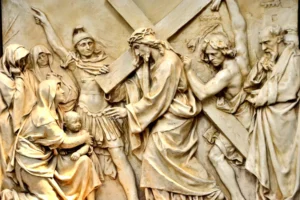
The Cross: Crucial in Worship
May 6, 2024
It’s not enough to sing songs about God’s love that produce warm feelings in our hearts. We need to remember the reality of Christ crucified.
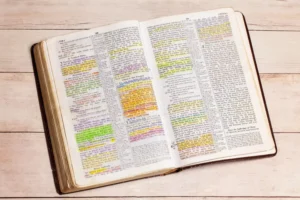
4 Reasons to Memorize Scripture This Year
May 1, 2024
I’m determined to memorize larger chunks of Scripture. I want God’s Word infused deep down into my life more than anything.

Why Do I Keep Sinning?
April 15, 2024
As a Christian, the good news is that you are no longer a slave to sin.

- Featured Essay The Love of God An essay by Sam Storms Read Now
- Faithfulness of God
- Saving Grace
- Adoption by God
Most Popular
- Gender Identity
- Trusting God
- The Holiness of God
- See All Essays

- Conference Media
- Featured Essay Resurrection of Jesus An essay by Benjamin Shaw Read Now
- Death of Christ
- Resurrection of Jesus
- Church and State
- Sovereignty of God
- Faith and Works
- The Carson Center
- The Keller Center
- New City Catechism
- Publications
- Read the Bible

U.S. Edition
- Arts & Culture
- Bible & Theology
- Christian Living
- Current Events
- Faith & Work
- As In Heaven
- Gospelbound
- Post-Christianity?
- TGC Podcast
- You're Not Crazy
- Churches Planting Churches
- Help Me Teach The Bible
- Word Of The Week
- Upcoming Events
- Past Conference Media
- Foundation Documents
- Church Directory
- Global Resourcing
- Donate to TGC
To All The World
The world is a confusing place right now. We believe that faithful proclamation of the gospel is what our hostile and disoriented world needs. Do you believe that too? Help TGC bring biblical wisdom to the confusing issues across the world by making a gift to our international work.
Journey to the Cross: A Devotional Guide

More By Matt Smethurst

Lent strikes many Protestants as the exclusive domain of Roman Catholics, but this season can serve any Christian as a unique time of preparation and repentance as we anticipate the death and resurrection of Jesus. On the Christian calendar, Lent (from Latin, meaning “fortieth”) is the 40 days beginning on Ash Wednesday and leading up to Easter Sunday. (Sundays aren’t counted, but generally set aside as days of renewal and celebration—“mini-Easters” of sorts.) Whatever you might think about popular practices, Kendal Haug and Will Walker argue Lent is “first and foremost about the gospel making its way deeper into our lives.”
Compiled by Haug and Walker, Journey to the Cross is a free devotional guide for the season of Lent. Each week focuses on a different theme (e.g., repentance, humility, suffering, lament, sacrifice, death), and each day follows a distinct pattern: Call to Worship, Confession, Contemplation, and Closing Prayer. “Lent is about Jesus,” the authors contend, and with each element “our aim is to reflect meaningfully on his journey to the cross, so that we might take up our cross and follow him.”
We’ve excerpted a sample selection (Day 3) below. As Haug and Walker write, “May we mourn the darkness in our hearts and rejoice in the light of God who came into the world to save us!”
Call to Worship
A voice cries: “In the wilderness prepare the way of the Lord; make straight in the desert a highway for our God. Every valley shall be lifted up, and every mountain and hill be made low; the uneven ground shall become level, and the rough places a plain. And the glory of the Lord shall be revealed, and all flesh shall see it together, for the mouth of the Lord has spoken.” A voice says, “Cry!” And I said, “What shall I cry?” All flesh is grass, and all its beauty is like the flower of the field. The grass withers, the flower fades when the breath of the Lord blows on it; surely the people are grass. The grass withers, the flower fades, but the word of our God will stand forever. (Isa. 40:3-8)
Most merciful God whose Son, Jesus Christ, was tempted in every way, yet was without sin, we confess before you our own sinfulness; we have hungered after that which does not satisfy; we have compromised with evil; we have doubted your power to protect us. Forgive our lack of faith; have mercy on our weakness. Restore in us such trust and love that we may walk in your ways and delight in doing your will. Amen. [ The Worship Sourcebook ]
Contemplation
At the onset of Jesus’ ministry, John announced his coming in fulfillment of Isaiah 40: “In the wilderness prepare the way of the LORD; make straight in the desert a highway for our God.” This is the cry of Lent: Prepare the way of the Lord! Make room for him in your thoughts and activities and affections.
An appropriate response to this announcement is to take stock of our lives, to reconsider how we’re living in light of God’s presence and power made available to us in Jesus. And that’s what Lent is for: to reflect on our lives as they are, and as they could be.
Giving up a habit or a food or a pleasure is not distinctly Christian. People give up things all the time in the name of self-help, or worse, vanity and vengeance. The point of Lent is to reorient life God-ward. This reorientation has to do with desert and wilderness.
A “wilderness experience” in our language usually means one has been gone for awhile and now returns with new insight or perspective, “a new lease on life.” Whether it’s a trip to the third world, or a hike in the mountains, people are stripped of their usual comforts, removed from the safety of familiarity, and forced to see the world from a different vantage point.
Our aim during Lent is something like a wilderness experience. We want to shake up our lives significantly enough that when we reach for our usual comforts and grasp a fistful of air, we’re forced to cling to Christ—his body, his blood. We want to see just how upside down our world really is as our “important things” prove to be perishable goods, as the light shines on our “righteousness” and exposes the layers of “self” beneath the surface, and as our “busy” lives are shown to simply lack wisdom.
The desire is a new lease on life, a view into the vast world of God, a deep breath and long look above the tree line of self-absorption. So in Lent we focus on getting away from the life of flesh and into the life of the Spirit, denying our ways and embracing God’s.
The point of giving things up isn’t to be reminded of how much we miss them, but rather to be awakened to how much we miss God and long for his life-giving Spirit. This means, of course, that Lent isn’t only about giving up things. It’s also about adding things, God-things.
- Having given up junk food for a healthy diet, what will you do with the energy you gain?
- Having given up reading magazines, what will you read now?
- Having given up Facebook, to whom will you devote meaningful conversation?
- Having given up lunch, how will you rely on God for the strength of “food from heaven”?
- Having given up TV as a default activity, how will you use that time to cultivate quality family time?
- Having given up isolation, how will you immerse yourself in community?
- Having given up shopping, will you see those who need clothing in your city?
- Having sacrificed whatever form of selfishness you indulge, how will you meet the needs of others?
The practice of giving something up for Lent is a way of entering into the wilderness with Jesus. Don’t worry about whether your sacrifice is a good one. It’s not a contest. Just make your aim to know Christ more fully, and trust him to lead you. Seek to replace that thing with devotion to Christ—his Word and his mission. God may lead you to give up and take up more as you go. That’s good. Deny yourself, take up your cross, and follow Jesus.
Closing Prayer
Merciful God, we come to you today realizing we are not how you want us to be. Help us let go of our past, that we may turn toward you and live again the life of faith. Help us call out our fear and hatred, our anger and self-pity. Lift the burden they place on our shoulders. Help us set aside our guilt and enter a season of healing. As we pray and fast today, help us become simple people, that we may see you plainly. Let us draw near to you now. Amen.
Purchase the entire Journey to the Cross: Readings and Devotions for Lent devotional, a resource by Providence Church in Austin, Texas.
Is there enough evidence for us to believe the Gospels?

Matt Smethurst is lead pastor of River City Baptist Church in Richmond, Virginia; editor at The Gospel Coalition; and author of Before You Share Your Faith: Five Ways to Be Evangelism Ready (2022), Deacons: How They Serve and Strengthen the Church (2021), Before You Open Your Bible: Nine Heart Postures for Approaching God’s Word (2019), and 1–2 Thessalonians: A 12-Week Study (2017). He and his wife, Maghan, have three children. You can follow him on Twitter .
Now Trending
1 can i tell an unbeliever ‘jesus died for you’, 2 the faqs: southern baptists debate designation of women in ministry, 3 7 recommendations from my book stack, 4 artemis can’t undermine complementarianism, 5 ‘girls state’ highlights abortion’s role in growing gender divide.

The 11 Beliefs You Should Know about Jehovah’s Witnesses When They Knock at the Door
Here are the key beliefs of Jehovah’s Witnesses—and what the Bible really teaches instead.
8 Edifying Films to Watch This Spring

Easter Week in Real Time

Resurrected Saints and Matthew’s Weirdest Passage

I Believe in the Death of Julius Caesar and the Resurrection of Jesus Christ

Does 1 Peter 3:19 Teach That Jesus Preached in Hell?

The Plays C. S. Lewis Read Every Year for Holy Week

Latest Episodes
Lessons on evangelism from an unlikely evangelist.

Welcome and Witness: How to Reach Out in a Secular Age

How to Build Gospel Culture: A Q&A Conversation

Examining the Current and Future State of the Global Church

Trevin Wax on Reconstructing Faith

Gaming Alone: Helping the Generation of Young Men Captivated and Isolated by Video Games

Raise Your Kids to Know Their True Identity

Faith & Work: How Do I Glorify God Even When My Work Seems Meaningless?

Let’s Talk (Live): Growing in Gratitude

Getting Rid of Your Fear of the Book of Revelation

Looking for Love in All the Wrong Places: A Sermon from Julius Kim

Introducing The Acts 29 Podcast
Israel My Glory
Advanced Search
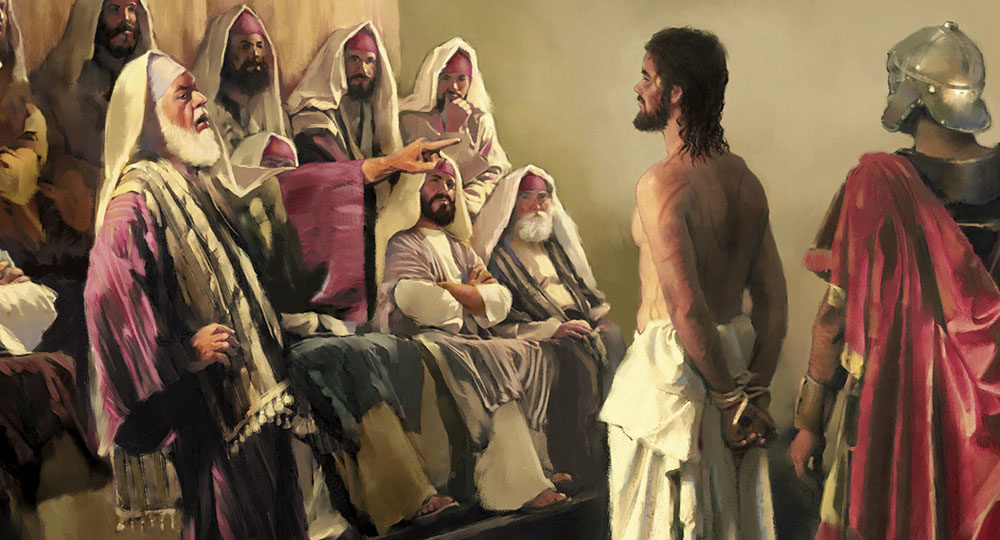
The Road to the Cross
Are you ever tempted to doubt God’s love for you? Perhaps you’ve lost a loved one, heard bad news from your doctor, or face some nagging temptation yet again. “God,” you agonize, “if You really love me, how can You allow this to come my way?”
At those moments, it is actually the facts about how much God does love us that can keep us from despair. “He who did not spare His own Son, but delivered Him up for us all, how shall He not with Him also freely give us all things?” (Rom. 8:32). Meditating on Christ’s sufferings actually helps us “know the love of Christ which passes knowledge” (Eph. 3:19) and is an eminently practical way to arm ourselves to trust Him, come what may.
Since the fourth century AD, some Christians have found solace in walking the Via Dolorosa, the “way of suffering” or “painful way,” to remember Jesus’ journey to the cross. This 2,000-foot-long route moves through Jerusalem’s Old City, from the Antonia Fortress near the Temple Mount to the Church of the Holy Sepulchre, the oldest traditional site for the crucifixion and burial. The site of the burial deemed authentic and revered by the vast majority of contemporary, conservative Christians is the Garden Tomb, located near the Damascus Gate.
What really happened on the way to the cross? And how does meditating on Scripture’s truths fortify us with the assurance of God’s unconditional love for us?
The Scriptures about the Via Dolorosa are clear, simple, and yet profound. On the road to the cross, God’s glory was on display; the plan of salvation was being worked out, and the love of Jesus for you and me was demonstrated: “Christ also suffered once for sins, the just for the unjust, that He might bring us to God” (1 Pet. 3:18).
Jesus’ suffering began in the Garden of Gethsemane. It continued through His arrest, the religious and civil trials He was forced to endure, and the inhumane scourging He received at the hands of the Roman soldiers as the Roman prefect, Pontius Pilate, sought to elicit sympathy from the crowds. Then Pilate “delivered Him to them to be crucified” (Jn. 19:16); and “when they had come to the place called Calvary, there they crucified Him” (Lk. 23:33).
The Bible records four main scenes, each of which displays a precious quality about the Lamb of God and His remarkable love for us.
Dependency Four soldiers formed the standard crucifixion squad. (“Then the soldiers…took His garments and made four parts, to each soldier a part,” Jn. 19:23.) The first stop on the way to Calvary was the courtyard of the Praetorium, or governor’s residence, where the soldiers “gathered the whole garrison around Him” (Mt. 27:27). This probably was the Fortress of Antonia, adjoining the Temple. Even today carvings of ancient Roman games can be found on the courtyard’s pavement.
The 200 or so soldiers of the “whole garrison” decided to have some cruel fun before the serious work of crucifixion began. Notorious for their brutality, they vented their own depravity and hatred for Israel by mocking the “King of the Jews.” They stripped Him, clothed Him as faux royalty with a scarlet robe (likely the discarded cloak of an officer), twisted thorns into a crown (reminding us of the curse of sin on the earth), and gave Him a reed “scepter.”
Then they bowed in mockery with royal greetings; repeatedly spat on Him in contempt; struck His head again and again with the reed, driving the painfully sharp thorns of the crown deeper and deeper into His skull; and slapped Him with their calloused hands. How ironic that these mere creatures were allowed to torment their Creator, the true King of the universe.
Yet, “when He was reviled, [He] did not revile in return; when He suffered, He did not threaten, but committed Himself to Him who judges righteously” (1 Pet. 2:23). Jesus turned Himself over to His Father, trusting that the Judge of all the earth would make things right in the end. The loving Lord Jesus utterly depended on His Father so He could patiently bear the rejection of His own creatures.
Humanity We do not know how long the mockery continued; but afterward, the march toward execution resumed. Despite His beatings, Jesus started out “bearing His cross” (Jn. 19:17), the 100-pound cross-beam that condemned men carried. However, Scripture says the soldiers conscripted Simon, a Cyrenian entering Jerusalem from the countryside, to finish the task. Clearly, the soldiers who had abused Jesus so cruelly never would have used Simon had there been any possibility that Jesus, staggering from exhaustion, torture, and loss of blood, could have dragged the weight Himself.
Jesus was not a superhuman sufferer. He was exhausted—a true member of humanity, “coming in the likeness of men” and being “obedient to…the death of the cross” (Phil. 2:7–8). The Man of Sorrows experienced the weakness of being human out of love for you and me.
Sympathy Luke’s Gospel says a great multitude followed Jesus, including women whose hearts were breaking watching Him move toward crucifixion. Amazingly, He turned to them to offer compassionate words of warning:
Daughters of Jerusalem, do not weep for Me, but weep for yourselves and for your children. For indeed the days are coming in which they will say, “Blessed are the barren!…” Then they will begin to say to the mountains, “Fall on us!” and to the hills, “Cover us!”(Lk. 23:28–30).
This was the sixth warning to Jerusalem that Luke recorded from the lips of Israel’s Messiah. Barrenness was considered a curse; but Jesus knew that when the Romans would burn Jerusalem in AD 70 (and when it will be devastated again during the Tribulation), having no children to face such warfare would be a blessing. It would be better to be crushed to death under rocks than face such anguish.
Jesus’ closing question was a maxim to say that if He experienced such suffering undeservedly, more horrible judgment will face those who deserve it: “If they do these things in the green wood, what will be done in the dry?” (v. 31). 1
The suffering Prophet, Priest, and King was moved with compassion to pause and issue a prophetic warning, even amid the stress of treading the path to the cross. Oh, how He loves you and me.
Tenacity Six months earlier Jesus had told the apostles He would be killed. He also said, “No one takes [My life] from Me, but I lay it down of Myself. I have power to lay it down, and I have power to take it again” (Jn. 10:18). Everything about His final months, weeks, and hours showed His absolute commitment to fulfill His Father’s plan as the Lamb of God.
When Jesus finally reached Golgotha, where He would be crucified, He was offered a drink of wine mixed with myrrh or gall, used as a pain-killing sedative. The Jewish Talmud says noble women in Jerusalem used to donate it and bring it to crucifixions. 2
“When He had tasted it, He would not drink” (Mt. 27:34). The Messiah was so determined to keep His senses sharp as He paid sin’s price for us that He refused anything that would dull His agony. His love for us was total and tenacious.
The way to the cross was complete. In horrible simplicity, Scripture says, “Then they crucified Him” (v. 35). All along the way, our Savior showed His dependency, humanity, sympathy, and tenacity. The Father was fully glorified by His Suffering Servant.
The next time circumstances tempt you to doubt God’s love for you, get out a Bible and walk beside your Lord on His way to the cross, as He suffered for you. The experience may change your life.
- I. Howard Marshall, The Gospel of Luke (Grand Rapids, MI: Eerdmans, 1978), 865.
- Leon Morris, The Gospel According to Matthew (Grand Rapids, MI: Eerdmans, 1992), 715.

Mark Johnson is the pastor of Independent Bible Church of Martinsburg, West Virginia.
1 thought on “ The Road to the Cross ”
Jesus is my saviour, protector, my everything
Leave a Reply Cancel reply
You must be logged in to post a comment.
This site uses Akismet to reduce spam. Learn how your comment data is processed .

Givers and Takers
In November 1980, Ronald Wilson Reagan became the oldest man ever elected to the office of president of the United States. He brought to the White House experience garnered...

The Greatest Sacrifice
With Passover beginning at sundown on April 14, grocery stores are stocking up on kosher items. Kosher literally means “fit and suitable,” and the laws of kashrut tell...
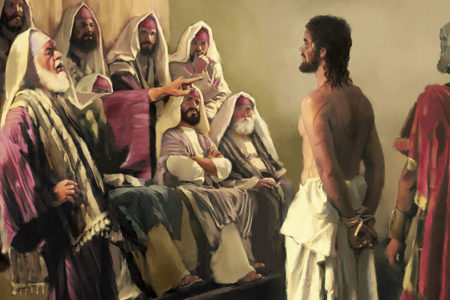
Are you ever tempted to doubt God’s love for you? Perhaps you’ve lost a loved one, heard bad news from your doctor, or face some nagging temptation yet again. “God,” you agonize...
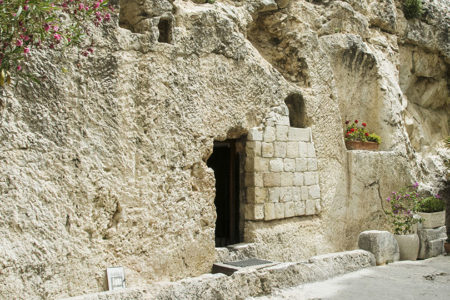
Thank God for ‘Reveille’
January 30, 1965, was a cloudy day in London. Silent crowds lined the streets to watch the gun carriage leave Westminster Hall, bearing a coffin. Millions more viewed...
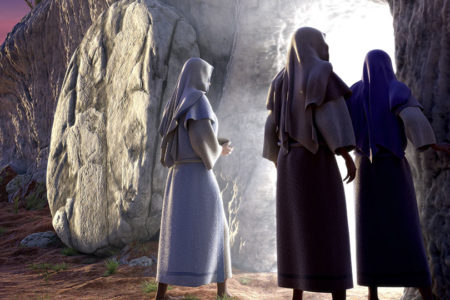
The Resurrection: Dispelling the Myths
Around the time of Christ there were dozens of Messianic movements. Each ended the same way: The leader died, often by execution, and the movement died...

Subscription Options
1 year digital subscription, free pdf book download - "what on earth is god doing" by renald showers, free full-issue flipbook & pdf download of current issue.
$9.99 every 1 year
1 Year Digital with Archive Access
Free full-issue flipbook & pdf downloads of current issue & select archives, complete access to our growing archive - eventually dating back through our inaugural 1942 issue.
$19.99 every 1 year
2 Year Digital Subscription
$19.99 every 2 years
2 Year Digital with Archive Access
$39.99 every 2 years
3 Year Digital Subscription
$29.99 every 3 years
3 Year Digital with Archive Access
$59.99 every 3 years
Subscribe For Full Access
Flipbooks and PDF downloads are available to subscribers only. Subscribe now or log in for access.
Jesus on the Cross: A Timeline of the Crucifixion
Discover the timeline of the what happened to Jesus on the cross during the crucifixion of the Prince of Life.
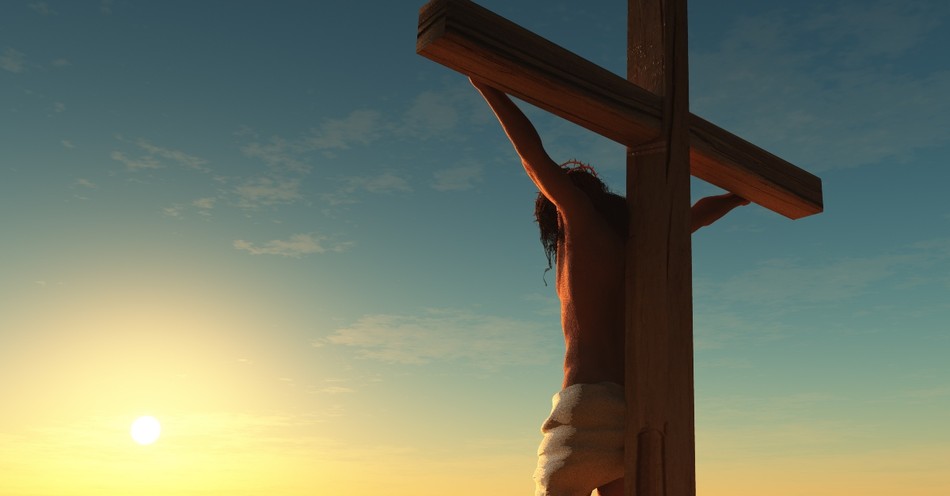
How long was Jesus on the cross, what were the 7 last words of Jesus on the cross, and what happened during his last hours? We have the accounts of the crucifixion recorded in the Gospel books of Matthew, Mark, Luke, and John. The crucifixion and death Let's explore the historical timeline of Jesus' crucifixion, a significant event in Christian history. This article delves into the sequence of events from the early morning when Jesus was condemned to His final hours on the cross. Each key moment that Jesus experienced on the cross is accompanied by corresponding Scripture verses, providing a biblical perspective on this crucial day in Christian tradition.
By following the timeline of this significant day, we can gain a deeper understanding of the biblical account of the crucifixion of Jesus and reflect on the last words spoken by Jesus as He hung on the cross, conveying His message of love, forgiveness, and salvation. His death on the cross is seen as the means by which humanity can be reconciled with God and have their sins forgiven, offering the gift of salvation.
Before 9:00 AM: Jesus on the Way to Golgotha
Scripture : Matthew 27:31-34 ; Mark 15:20-23 ; Luke 23:26-33 ; and John 19:17
The Romans intended crucifixion to be
- unspeakably cruel
- mercilessly lingering - men would often last a day or more on the cross
- inescapably public - again, to hinder any seditious impulse in the citizenry
- publicly certifiable - the death had to occur visibly and undeniably on the cross so that the rumor would not get started that the seditionist had somehow survived and the rebellion should go on.
Thus, crucifixion was always on a low hill outside the main city gate because a gate is a bottleneck - a person going into/out of the city must pass that way.
Jesus is forced to carry the horizontal piece of the cross to the place of execution, just outside the main gate on the north of the city of Jerusalem.
9:00 AM-Noon: The First Three Hours of Jesus the Cross (9:00 AM-Noon)
Scripture : Matthew 27:35-44 ; Mark 15:24-32 ; Luke 23:33-43 ; and John 19:18-27
Jesus is crucified between two criminals. Sunlight remains. The soldiers gamble for Jesus's garments (in fulfillment of Psalms 22:18 ). The inscription, "King of the Jews" is affixed amid much scoffing. This inscription, according to the biblical account, was placed there by order of the Roman governor Pontius Pilate and was written in multiple languages, including Latin, Greek, and Hebrew.
Jesus speaks three times:
- to His heavenly Father on behalf of His tormentors: "Father, forgive them,"
- to the repentant thief: "Today you shall be with me in paradise,"
- to His mother and to John: "Woman, behold thy son."
Understanding the Meaning of Jesus' First Words From the Cross
"father, forgive them.".
The ESV translation of Luke 23:34 says, “Father, forgive them, for they know not what they do.” These were the first of our Lord’s final words upon the cross, as recorded in the Gospel of Luke. In light of what is known about the process of ancient Roman crucifixion, it’s incredible to think that the world’s Greatest Defender was not once found to be defending his own innocence or even returning an angry word upon His deserving accusers.
Rather, the One who came to save, having Himself been forsaken by God in this moment ( Mark 15:34 ), was found interceding for the souls that put Him there, pleading that they themselves would not also be found forsaken. Forgiveness - it's who Jesus is, it's what he taught, and why He came.
By interceding for His transgressors through this prayer, Jesus fulfilled the Old Testament prophecy that was foretold by Isaiah, hundreds of years prior. This prayer, from upon the cross particularly, would have been a confirmation of His identity to those awaiting their beloved messiah, as described by the prophets of God. (excerpt from Why Did Jesus Say "Father Forgive Them" , Amy Swanson)
"Today you will be with me in paradise"
Jesus was blameless, without sin, and was not guilty of such a horrific death, but two men who were guilty of their crimes hung next to Him that fateful day. Both men spoke to Jesus, but only one would die to be greeted into the promise of Heaven. The response of Jesus in this instance was profound to the criminal, as He promised this sinner that he too would enter the gates of Heaven to live in Paradise, not later but that day!
We are not told what this criminal stole to be convicted guilty of, but whatever it was it was worthy of the most severe punishment. Even a crime so terrible that man would consider worthy of death could be forgiven by Jesus. How Christ responded to the criminal next to Him has takeaways for Christians today. No matter how severe the sin, there is opportunity for salvation and forgiveness from Christ—even in the final breaths of life. Jesus died for our transgressions, and in that forgiveness, abides for us. This guilty criminal acknowledged Jesus as Savior, for he acknowledged His Kingdom. Jesus knew his heart and granted the promise that despite earth’s sentence upon this man, he would enter the gates of Heaven that very day. (excerpt from What Did Jesus Mean When He Told the Thief "Today You Will Be with Me in Parradise"? , Cally Logan)
"Woman, behold your son"
Jesus saw his mother, Mary, standing by and knew her cares and griefs, and He saw John standing not far off. So, He established a new relationship between His beloved mother and His beloved disciple. He said to her, "Woman, behold your son, for whom, from now on, you must have a motherly affection," and to John, "Behold you mother, to whom you must pay a sonly duty." And so from that hour, that hour never to be forgotten, that disciple took her to his own home.
He calls her woman , not mother , not out of any disrespect to her, but because mother would have been a cutting word to her who was already wounded with grief. He directs her to look upon John as her son: "Behold him as thy son, who stands there by you, and be as a mother to him." (excerpt from Why Did Jesus Say "Woman Behold Your Son"? ,)

Noon-3:00 PM - The Final Three Hours of Jesus the Cross
Scripture : Matthew 27:45-50 ; Mark 15:33-37 ; Luke 23:44-46 ; and John 19:28-30
God draws a supernatural darkness over the scene. Jesus, as the Lamb of God, is "forsaken" (i.e., judicially dis-fellowshipped, rejected) by the Father, suffering the agony and torment of spiritual death (i.e., separation from the Father) on behalf of fallen men. It was the prospect of this spiritual separation that had so horrified Jesus as He contemplated the cross.
Jesus is silent until late in the three hours, and then He speaks four times, his last words:
- in agony, "My God, why...,"
- to those standing by: "I thirst!" (Jesus had something more to say, but His mouth and throat were so parched by the ordeal of crucifixion that He did not have the physical strength to say it; thus this request for moisture for His lips),
- to a breathlessly waiting world, a cry of sublime victory: "It is finished," and
- having completed the awful task: "Father, into thy hands...." The Prince of Life lays down His physical life for three dark days.
The Final Sayings of Jesus from the Cross
"my god, my god, why have you forsaken me".
I believe that in the time when in his humanity he felt forsaken by the Father, that as he looked around and we have this parade of people coming by that were mocking him, the chief priest and rulers. I understand why these robbers would mock me. I understand why the crowds who said Hosanna five days ago, they don't understand. I understand why they would forsake me. I understand why these Jewish leaders would forsake me. But my God, my God, why have you forsaken me?
That was what broke his heart. He understood why all these others, for various reasons would forsake him. But that was what broke his heart because never had he known a moment's time of any sort of separation in his relationship with the Father. So I think this was the great low point, if you will, in his experience on the cross. (excerpt from My God Why Have You Forsaken Me - Meaning and Importance )

What Is the Life-Changing Impact of These 6 Ways to Worship?
This may appear overly simplistic. The temptation is to take these words and interpret them in some overly spiritualized manner. We might equate “thirsting” with Christ’s call to “hunger and thirst after righteousness” ( Matthew 5:6 ). Another possible connection would be to link this statement with Christ’s invitation that all who are thirsty are invited to drink from the waters of life ( Revelation 22:17 ). These interpretive links are not necessarily wrong, and word-studies can be an enjoyable foray into both biblical meditation and biblical study.
It is out of this place of physical exhaustion that Jesus declares his thirst. The hours spent in the sun, coupled with the physical pain he was feeling, would have created mild, if not severe, dehydration. Jesus speaks of his own thirst out a real human need for sustenance and relief. On the cross, Jesus is physically thirsty. (excerpt from What is the Meaning and Significance of Jesus Saying "I Thirst"? , Rev. Kyle Norman)
"It is finished"
Jesus is saying in “It is finished” that the debt owed by man to his Creator on account of Adam’s sin is finally and forever dealt with. Jesus, with “it is finished,” is saying not only does He take away man’s sin, but now He removes it as far as the east is to the west, for is finished, done, signed, and sealed because of the blood of Jesus .
When Jesus said, “It is finished” ( John 19:30 ) He brought about the completion of all the Old Testament prophecies, symbols, and foreshadowing about Himself. From the beginning of Genesis to the end of Malachi , there are 300 detailed prophecies about the Anointed One Jesus, which are fulfilled by Him. From the “seed” who would crush the serpent's head ( Genesis 3:15 ) to the Suffering Servant ( Isaiah 53 ). (excerpt from The Meaning and Significance of "It is Finished" , Dave Jenkins)
"Father, into your hands I commit my spirit"
For some believers, whether or not the translation is more active, like “gave up the ghost” or “breathed his last,” in which Jesus appears to be making a decision is very important. Because He was fully God and fully man, Jesus could have taken himself off the cross, remained alive, and exerted His divine authority. He chose not to do so. His divine nature means He intentionally had to choose to no longer hold onto life.
For people who believe this element of the crucifixion is important, the passive implication that Jesus simply passed away on the cross due to sustained injuries in some translation is an insufficient reading of the text. Translations with “expired” or “died” would not be acceptable. Other readers and thinkers do not see this choice as taking away from Jesus’ divine nature, and go with what is easier for them to read or exegete.
It is also significant because of its connection to Psalm 31 . It is a direct quotation from that passage of Scripture. In context, it appears: “For you are my rock and my fortress; and for your name’s sake you lead me and guide me; you take me out of the net they have hidden for me, for you are my refuge. Into your hand I commit my spirit; you have redeemed me, O LORD, faithful God” ( Psalm 31:3-5 ).
Jesus invokes this Psalm with the same meaning. Jesus lived a blameless life on earth. Not only did Jesus know He would go to be with the Father, but He knew His life would be vindicated with the resurrection mere days later. Though Jesus’ enemies thought they defeated Him at Calvary, God granted Jesus the ultimate victory with new bodily life. Jesus will have the final victory after His return as well. (excerpt from Beautiful Meaning Behind "Father, into your hands I commit my spirit" , Bethany Verrett)
Physical Phenomena That Occurred at the Death of Jesus
Scripture : Matthew 27:51-56 ; Mark 15:38-41 ; and Luke 23:50-54
These events include the following: the rending of the veil in the temple; tremors in the earth that split rocks; the resuscitation (return to mortal life) of some who had (recently?) died and been buried in the regions of Jerusalem. These physical signs drew many onlookers to faith, including a centurion (Roman soldier given leadership over 100 troops) who had been assigned to the detail conducting this crucifixion.
Adapted from the Life of Christ study notes of Dr. Doug Bookman, professor of New Testament Exposition at Shepherds Theological Seminary (used by permission).
Get your FREE Holy Week Guide here . Download this 8 Day Prayer and Scripture Guide to as you reflect on the life, death, and resurrection of Jesus.
Previous: Jesus Tried by Pilate and Herod Antipas
Next: Jesus's Body Placed in the Guarded Tomb

How Trusting God’s Timing Can Bring Unshakeable Peace

5 Sneaky Truths About the Pitfalls of Pride
3 Truths About Gaslighting Every Christian Should Know
The Best Birthday Prayers to Celebrate Friends and Family
Morning Prayers to Start Your Day with God
Is Masturbation a Sin?
31 Night Prayers: Powerful to Pray Evening Rest and Bedtime
Fear is powerful. The phrase ‘do not fear’ appears 95 times in the New American Standard translation of the Bible. “Free” pops up 133 times. Jesus died to free us from fear, and in today’s verse, He reminds us why.
Bible Baseball
Play now...
Saintly Millionaire
Bible Jeopardy
Bible Trivia By Category
Bible Trivia Challenge
Holy Week Timeline: From Palm Sunday to the Resurrection
Follow along with the steps of Jesus Christ during Holy Week
- Cultivating Prayer as a Way of Life
- Essential Bible Verses
- Christianity Origins
- The New Testament
- The Old Testament
- Christian Life For Teens
- Christian Prayers
- Inspirational Bible Devotions
- Denominations of Christianity
- Christian Holidays
- Christian Entertainment
- Key Terms in Christianity
- Catholicism
- Latter Day Saints
:max_bytes(150000):strip_icc():format(webp)/DSC_5412re-4x5-56a149d83df78cf772693608.jpg)
- General Biblical Studies, Interdenominational Christian Training Center
While the exact order of events during Holy Week is debated by biblical scholars, this timeline represents an approximate outline of major events of the most holy days on the Christian calendar. Follow along with the steps of Jesus Christ from Palm Sunday through Resurrection Sunday, exploring the major events that occurred on each day.
Day 1: Triumphal Entry on Palm Sunday
On the Sunday before his death , Jesus began his trip to Jerusalem, knowing that soon he would lay down his life for our sins. Nearing the village of Bethphage, he sent two of his disciples ahead, telling them to look for a donkey and its unbroken colt. The disciples were instructed to untie the animals and bring them to him.
Then Jesus sat on the young donkey and slowly, humbly, made his triumphal entry into Jerusalem, fulfilling the ancient prophecy in Zechariah 9:9:
"Rejoice greatly, O Daughter of Zion! Shout, Daughter of Jerusalem! See, your king comes to you, righteous and having salvation, gentle and riding on a donkey, on a colt, the foal of a donkey."
The crowds welcomed him by waving palm branches in the air and shouting, "Hosanna to the Son of David ! Blessed is he who comes in the name of the Lord! Hosanna in the highest!"
On Palm Sunday, Jesus and his disciples spent the night in Bethany, a town about two miles east of Jerusalem. This is where Lazarus , whom Jesus had raised from the dead, and his two sisters, Mary and Martha , lived. They were close friends of Jesus, and probably hosted Him and His disciples during their final days in Jerusalem.
Jesus' triumphal entry is recorded in Matthew 21:1-11, Mark 11:1-11, Luke 19:28-44, and John 12:12-19.
Day 2: On Monday, Jesus Clears the Temple
Rischgitz/Getty Images
The following morning, Jesus returned with his disciples to Jerusalem. Along the way, he cursed a fig tree because it had failed to bear fruit. Some scholars believe this cursing of the fig tree represented God's judgment on the spiritually dead religious leaders of Israel. Others believe the symbolism extended to all believers, demonstrating that genuine faith is more than just outward religiosity; true, living faith must bear spiritual fruit in a person's life.
When Jesus arrived at the Temple, he found the courts full of corrupt money changers . He began overturning their tables and clearing the Temple, saying, "The Scriptures declare, 'My Temple will be a house of prayer,' but you have turned it into a den of thieves" (Luke 19:46).
On Monday evening Jesus stayed in Bethany again, probably in the home of his friends, Mary, Martha, and Lazarus .
Monday's events are recorded in Matthew 21:12–22, Mark 11:15–19, Luke 19:45-48, and John 2:13-17.
Day 3: On Tuesday, Jesus Goes to the Mount of Olives
Andrew_Howe / Getty Images
On Tuesday morning, Jesus and his disciples returned to Jerusalem. They passed the withered fig tree on their way, and Jesus spoke to his companions about the importance of faith.
Back at the Temple, religious leaders were upset at Jesus for establishing himself as a spiritual authority. They organized an ambush with the intent to place him under arrest. But Jesus evaded their traps and pronounced harsh judgment on them, saying:
"Blind guides!...For you are like whitewashed tombs—beautiful on the outside but filled on the inside with dead people's bones and all sorts of impurity. Outwardly you look like righteous people, but inwardly your hearts are filled with hypocrisy and lawlessness...Snakes! Sons of vipers! How will you escape the judgment of hell?" (Matthew 23:24-33)
Later that afternoon, Jesus left the city and went with his disciples to the Mount of Olives, which sits due east of the Temple and overlooks Jerusalem. Here Jesus gave the Olivet Discourse, an elaborate prophecy about the destruction of Jerusalem and the end of the age. He speaks, as usual, in parables, using symbolic language about the end times events, including His Second Coming and the final judgment.
Scripture indicates that this Tuesday was also the day Judas Iscariot negotiated with the Sanhedrin , the rabbinical court of ancient Israel, to betray Jesus (Matthew 26:14-16).
After a tiring day of confrontation and warnings about the future, once again, Jesus and the disciples returned to Bethany to stay the night.
The tumultuous events of Tuesday and the Olivet Discourse are recorded in Matthew 21:23–24:51, Mark 11:20–13:37, Luke 20:1–21:36, and John 12:20–38.
Day 4: Holy Wednesday
Apic / Getty Images
The Bible doesn't say what the Lord did on the Wednesday of Passion Week. Scholars speculate that after two exhausting days in Jerusalem, Jesus and his disciples spent this day resting in Bethany in anticipation of Passover .
Just a short time previously, Jesus had revealed to the disciples, and the world, that he had power over death by raising Lazarus from the grave. After seeing this incredible miracle, many people in Bethany believed that Jesus was the Son of God and put their faith in him. Also in Bethany just a few nights earlier, Lazarus' sister Mary had lovingly anointed the feet of Jesus with expensive perfume.
Day 5: Passover and Last Supper on Maundy Thursday
Holy Week takes a somber turn on Thursday.
From Bethany, Jesus sent Peter and John ahead to the Upper Room in Jerusalem to make the preparations for the Passover Feast. That evening after sunset, Jesus washed the feet of his disciples as they prepared to share in the Passover. By performing this humble act of service, Jesus demonstrated by example how believers should love one another. Today, many churches practice foot-washing ceremonies as a part of their Maundy Thursday services.
Then, Jesus shared the feast of Passover with his disciples, saying:
"I have been very eager to eat this Passover meal with you before my suffering begins. For I tell you now that I won't eat this meal again until its meaning is fulfilled in the Kingdom of God." (Luke 22:15-16, NLT )
As the Lamb of God, Jesus was about to fulfill the meaning of Passover by giving his body to be broken and his blood to be shed in sacrifice, freeing us from sin and death. During this Last Supper , Jesus established the Lord's Supper, or Communion , instructing his followers to continually remember his sacrifice by sharing in the elements of bread and wine (Luke 22:19-20).
Later, Jesus and the disciples left the Upper Room and went to the Garden of Gethsemane , where Jesus prayed in agony to God the Father . Luke's Gospel says that "his sweat became like great drops of blood falling down to the ground" (Luke 22:44, ESV ).
Late that evening in Gethsemane, Jesus was betrayed with a kiss by Judas Iscariot and arrested by the Sanhedrin. He was taken to the home of Caiaphas , the High Priest, where the whole council had gathered to begin making their case against Jesus.
Meanwhile, in the early morning hours, as Jesus' trial was getting underway, Peter denied knowing his Master three times before the rooster crowed.
Thursday's events are recorded in Matthew 26:17–75, Mark 14:12-72, Luke 22:7-62, and John 13:1-38.
Day 6: Trial, Crucifixion, Death, and Burial on Good Friday
Good Friday is the most difficult day of Passion Week. Christ's journey turned treacherous and acutely painful in these final hours leading to his death.
According to Scripture, Judas Iscariot, the disciple who had betrayed Jesus, was overcome with remorse and hanged himself early Friday morning.
Meanwhile, before the third hour (9 a.m.), Jesus endured the shame of false accusations, condemnation, mockery, beatings, and abandonment. After multiple unlawful trials, he was sentenced to death by crucifixion , one of the most horrible and disgraceful methods of capital punishment known at the time.
Before Christ was led away, soldiers spit on him, tormented and mocked him, and pierced him with a crown of thorns . Then Jesus carried his own cross to Calvary where, again, he was mocked and insulted as Roman soldiers nailed him to the wooden cross .
Jesus spoke seven final statements from the cross. His first words were, "Father, forgive them, for they do not know what they are doing." (Luke 23:34, NIV ). His last words were, "Father, into your hands I commit my spirit." (Luke 23:46, NIV)
Then, about the ninth hour (3 p.m.), Jesus breathed his last breath and died .
By 6 p.m. Friday evening, Nicodemus and Joseph of Arimathea took Jesus' body down from the cross and lay it in a tomb.
Friday's events are recorded in Matthew 27:1-62, Mark 15:1-47, Luke 22:63-23:56, and John 18:28-19:37.
Day 7: Saturday in the Tomb
Jesus' body lay in its tomb , where it was guarded by Roman soldiers throughout the day on Saturday, which was the Sabbath . When the Sabbath ended at 6 p.m., Christ's body was ceremonially treated for burial with spices purchased by Nicodemus:
"He brought about seventy-five pounds of perfumed ointment made from myrrh and aloes. Following Jewish burial custom, they wrapped Jesus' body with the spices in long sheets of linen cloth." (John 19: 39-40, NLT )
Nicodemus, like Joseph of Arimathea, was a member of the Sanhedrin, the court that had condemned Jesus Christ to death. For a time, both men had lived as secret followers of Jesus, afraid to make a public profession of faith because of their prominent positions in the Jewish community.
Similarly, both were deeply affected by Christ's death. They boldly came out of hiding, risking their reputations and their lives because they had come to realize that Jesus was, indeed, the long-awaited Messiah . Together they cared for Jesus' body and prepared it for burial.
While his physical body lay in the tomb, Jesus Christ paid the penalty for sin by offering the perfect, spotless sacrifice. He conquered death, both spiritually and physically, securing our eternal salvation :
"For you know that God paid a ransom to save you from the empty life you inherited from your ancestors. And the ransom he paid was not mere gold or silver. He paid for you with the precious lifeblood of Christ, the sinless, spotless Lamb of God." (1 Peter 1:18-19, NLT )
Saturday's events are recorded in Matthew 27:62-66, Mark 16:1, Luke 23:56, and John 19:40.
Day 8: Resurrection Sunday
On Resurrection Sunday , or Easter, we reach the culmination of Holy Week. The resurrection of Jesus Christ is the most important event of the Christian faith. The very foundation of all Christian doctrine hinges on the truth of this account.
Early Sunday morning, several women ( Mary Magdalene , Joanna, Salome, and Mary the mother of James) went to the tomb and discovered that the large stone covering the entrance had been rolled away. An angel announced:
"Don't be afraid! I know you are looking for Jesus, who was crucified. He isn't here! He is risen from the dead, just as he said would happen." (Matthew 28:5-6, NLT )
On the day of his resurrection, Jesus Christ made at least five appearances. Mark's Gospel says the first person to see him was Mary Magdalene. Jesus also appeared to Peter , to the two disciples on the road to Emmaus, and later that day to all of the disciples except Thomas , while they were gathered in a house for prayer.
The eyewitness accounts in the Gospels provide what Christians believe to be undeniable evidence that the resurrection of Jesus Christ did indeed happen. Two millennia after his death, followers of Christ still flock to Jerusalem to see the empty tomb.
Sunday's events are recorded in Matthew 28:1-13, Mark 16:1-14, Luke 24:1-49, and John 20:1-23.
- What Is Palm Sunday?
- Jesus' Entry into Jerusalem (Mark 11:1-11)
- Why Are Palm Branches Used on Palm Sunday?
- Palm Sunday Bible Story Summary
- What Easter Means to Christians
- How Long Did Jesus Live on Earth?
- Orthodox Easter Dates
- Joseph of Arimathea, Donor of Jesus' Tomb
- Timeline of Jesus' Death
- What Is Good Friday?
- Jesus Drives the Money Changers from the Temple
- Bible Story Summaries (Index)
- Facts About the Crucifixion of Jesus Christ
- Get to Know the 12 Apostles of Jesus
- Israel Tour Pictures: Photo Journal of the Holy Land
- Explaining the Differences Between John and the Synoptic Gospels
New sermon series! Show your church how to live without fear.

- Jesus' Journey To The Cross
- View on one page
- Download Sermon Slides
- Download Sermon Graphics
- Download (PDF)
- Download Sermon (Word Doc)
- Copy sermon

Jesus' Journey To The Cross Series
Contributed by bruce willis on dec 18, 2006 (message contributor).
Scripture: Philippians 2:1-14
Denomination: Baptist
Summary: This is the second sermon in a series of three on "The Journey To The Cross" which deals with brokenness in terms of surrendering our rights from The Exchanged Life perspective.
Last week I began a series of sermons on “The Journey To The Cross” wherein I talked about how we get started on the Journey and how we continue on the Journey from Luke 9:23-25 . I mentioned that we need to come to an experiential awareness of what the cross means in our lives today.
In this sermon I want you to see another biblical picture of The Journey To The Cross in “Jesus Journey to the Cross” as revealed in Philippians 2:5-11 . This is a snapshot of Jesus journey to the cross and your journey will mirror Jesus Journey. Our cross will correlate with His cross. That is to say, we need to come to an experiential awareness of the cross through, humility, suffering, and brokenness. That’s what Jesus did and that’s where we must go on our journey to the Cross.
The point we need to see today is, when God is breaking us, we need to give up all rights during that process of brokenness. We have to give up all rights to defend ourselves, because it’s God who’s at work in us, it’s He who is breaking us. When Jesus went to the cross, He had to give up all rights to be accepted. He had to be willing to be rejected. When Jesus went to the cross he went through tremendous rejection. I mean when you think about it, one of his best friends, Peter, denied him three times. In fact, a lot of the people turned on Jesus because He wasn’t fulfilling their dreams of rescuing them from the Romans. When Jesus went to the cross He had to leave behind his mother and brothers. And the three friends who went to pray with Him fell asleep on Him. He was misunderstood and even when He was dying, He cried out, “My God, my God, Why hast Thou forsaken me?” He felt rejected by His own Father. So before we look at our continuing journey and in the midst of this context, let’s look at Jesus journey to the Cross. As we do the first thing we need to see is:
I. The ATTITUDE of Jesus as He took His Journey vv.5-6
Have you ever thought about why God picked the experiences He did for Jesus to have on the way to the cross? Why did those exact things happen to Him? Why weren’t there other things? Why were those particular things prophesied and told beforehand. Well, it seems to me that God hand picked those things in order to allow us to know what we might have to suffer as God breaks us and sets us free from our "Selves." Because in Philippians 3:8-10 Paul testifies, “I count all things to be loss in view of the surpassing value of knowing Christ, and may be found in Him, not having a righteousness of my own . . . but that which comes through faith in Christ . . . that I may know Him and the power of His resurrection and the fellowship of His sufferings, being conformed to His death...” Do you see, that what we go through is going to conform us not only to his sufferings, but his death. This is so that His death can be experienced as our death (identification).
Now, in our text one of the first things God tells us is that we have to have an attitude. The same attitude Jesus had as he was going to the cross. And when we have this kind of attitude we’ll understand why we have to go through what we experience. We’ll understand why this sense of loss is necessary. You see, God is setting us free from our "Self" and the flesh – we’re being conformed to His death. God is at work in us to will and to work according to His good pleasure (v.13). So we have to work out our own salvation with fear and trembling (v.12). You see, God put a salvation in you (Christ’s life). Now that needs to be worked out of you. Christ needs to be worked out of you so that He’s manifested to others, to your brothers and to the world. Your salvation needs to be manifested in terms of your past, in terms of whether your parents still control you, whether or not a tragedy still controls you, whether or not you’re a mere survivor or you’re "more than a conqueror." All this salvation needs to be worked out of you on your way to the cross.
It was worked out for Jesus in that he had the right attitude. He humbled himself. There’s something in us, that thinks it’s in the form of God too and it’s the flesh. So I need to be emptied of my Self, my self-sufficiency, my own control. However, I can’t empty myself as Jesus did, but I can be emptied and will be at the cross. Hence, our need for the journey to the cross. Now this matter of humility is important. In 1 Peter 5:5 b we read, “clothe yourselves with humility toward one another, for God is opposed to the proud, but gives grace to the humble.” Grace is another part of this important attitude. Sometimes we talk about grace as something that we’re helpless over – that we have no effect upon, that God just gives grace and you either get it or you don’t. Well, according to this verse the Bible tells us that grace can only be ours if we humble ourselves under the mighty hand of God. And so we do have something to do with the receiving of grace, it’s in our attitude. Well, what happened to Jesus when He humbled Himself? Philippiand 2.9 says, “God highly exalted Him . . ." So, as a result of the attitude of Jesus we also need to see the:
Related Media

Scriptures: 1 Peter 5:5 , Luke 9:23-25 , Philippians 2:1-14 , Philippians 2:5-11 , Philippians 3:8-10
Sermon Topics: Cross
Nobody has commented yet. Be the first!
Your Viewing History
- Clear & Biblical Preaching
- Try PRO Free
Popular Preaching Resources
New Sermon Series Now Available
Everything you need for your next series
AI Sermon Generator
Generate sermon ideas with a safe, secure tool for solid preaching.
Biblical Sermon Calendar
Customizable sermon manuscripts for verse-by-verse preaching
Sermon Research Assistant
Free custom sermon in 5-10 minutes!
Topical Sermon Calendar
Preach with creativity and impact throughout the year
Sermon Kits for Preaching
I Desire Mercy Not Sacrifice
Experiencing the mercy of God in our lives
Ready & Faithful
Looking to Jesus for help now and hope in the future
Why Suffering?
Help your church understand God's plan in pain
To start saving items to a SermonFolder, please create an account.
This is the second sermon in a series of three on "The Journey To The Cross" which deals with brokenness in terms of surrendering our rights from The Exchanged Life perspective.
To save items to a SermonFolder, please sign in to your account
Enter your email address and we will send you a link to reset your password.
Creating your slides…
Creating your graphics…, creating your word document….
- Interlinear
- More ▼
45 Bible Verses about The Cross
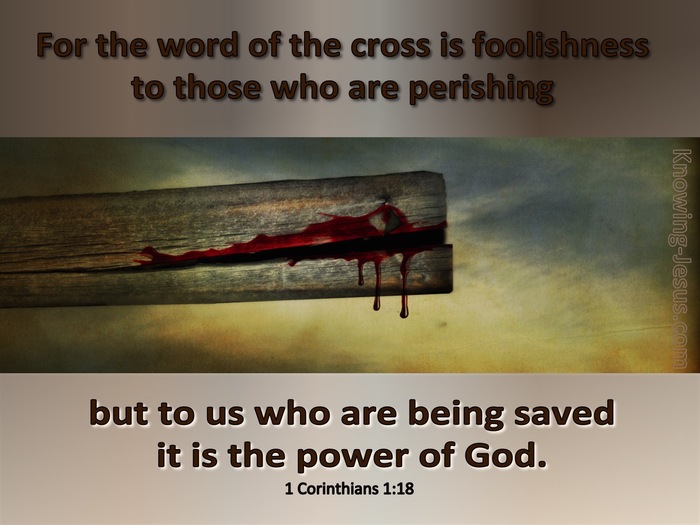
Most Relevant Verses
There they crucified Him, and with Him two other men, one on either side, and Jesus in between.
For many walk, of whom I often told you, and now tell you even weeping, that they are enemies of the cross of Christ,
Therefore the soldiers did these things. But standing by the cross of Jesus were His mother, and His mother’s sister, Mary the wife of Clopas, and Mary Magdalene.
For the word of the cross is foolishness to those who are perishing, but to us who are being saved it is the power of God.
Whoever does not carry his own cross and come after Me cannot be My disciple.
save Yourself, and come down from the cross!”
Then Jesus said to His disciples, “If anyone wishes to come after Me, he must deny himself, and take up his cross and follow Me.
When the centurion, who was standing right in front of Him, saw the way He breathed His last, he said, “Truly this man was the Son of God!”
But may it never be that I would boast, except in the cross of our Lord Jesus Christ, through which the world has been crucified to me, and I to the world.
They took Jesus, therefore, and He went out, bearing His own cross, to the place called the Place of a Skull, which is called in Hebrew, Golgotha.
They *crucified two robbers with Him, one on His right and one on His left.
The God of our fathers raised up Jesus, whom you had put to death by hanging Him on a cross.
As they were coming out, they found a man of Cyrene named Simon, whom they pressed into service to bear His cross.
this Man, delivered over by the predetermined plan and foreknowledge of God, you nailed to a cross by the hands of godless men and put Him to death.
But Jesus turning to them said, “Daughters of Jerusalem, stop weeping for Me, but weep for yourselves and for your children.
And He said to him, “Truly I say to you, today you shall be with Me in Paradise.”
Being found in appearance as a man, He humbled Himself by becoming obedient to the point of death, even death on a cross.
and He Himself bore our sins in His body on the cross, so that we might die to sin and live to righteousness; for by His wounds you were healed.
At that time two robbers *were crucified with Him, one on the right and one on the left.
having canceled out the certificate of debt consisting of decrees against us, which was hostile to us; and He has taken it out of the way, having nailed it to the cross.
and saying, “If You are the King of the Jews, save Yourself!”
And he who does not take his cross and follow after Me is not worthy of Me.
And He was saying to them all, “If anyone wishes to come after Me, he must deny himself, and take up his cross daily and follow Me.
For indeed He was crucified because of weakness, yet He lives because of the power of God. For we also are weak in Him, yet we will live with Him because of the power of God directed toward you.
Now if we have died with Christ, we believe that we shall also live with Him,
For Christ did not send me to baptize, but to preach the gospel, not in cleverness of speech, so that the cross of Christ would not be made void.
Now in the place where He was crucified there was a garden, and in the garden a new tomb in which no one had yet been laid.
And he was saying, “Jesus, remember me when You come in Your kingdom!”
Pilate also wrote an inscription and put it on the cross. It was written, “JESUS THE NAZARENE, THE KING OF THE JEWS.”
They *pressed into service a passer-by coming from the country, Simon of Cyrene (the father of Alexander and Rufus), to bear His cross.
Now on one of those days Jesus and His disciples got into a boat, and He said to them, “Let us go over to the other side of the lake.” So they launched out.
and through Him to reconcile all things to Himself, having made peace through the blood of His cross; through Him, I say, whether things on earth or things in heaven.
When Jesus then saw His mother, and the disciple whom He loved standing nearby, He *said to His mother, “Woman, behold, your son!”
But one of the soldiers pierced His side with a spear, and immediately blood and water came out.
But Jesus was saying, “Father, forgive them; for they do not know what they are doing.” And they cast lots, dividing up His garments among themselves.
Christ redeemed us from the curse of the Law, having become a curse for us—for it is written, “ Cursed is everyone who hangs on a tree ”—
When the sixth hour came, darkness fell over the whole land until the ninth hour.
Therefore when Jesus had received the sour wine, He said, “It is finished!” And He bowed His head and gave up His spirit.
By this the love of God was manifested in us, that God has sent His only begotten Son into the world so that we might live through Him.
On that day, when evening came, He *said to them, “Let us go over to the other side.”
Those who desire to make a good showing in the flesh try to compel you to be circumcised, simply so that they will not be persecuted for the cross of Christ.
Now those who belong to Christ Jesus have crucified the flesh with its passions and desires.
And when they came to a place called Golgotha, which means Place of a Skull,
When they led Him away, they seized a man, Simon of Cyrene, coming in from the country, and placed on him the cross to carry behind Jesus.
Bible Theasaurus
- Cross ( 209 instances )
Topics on The Cross
- Carrying The Cross
Related Topics
- Christ Was Killed
- Christ's Disciples Will Suffer
- Death To Self
- Death penalty
- Gospel, Historical Foundation Of
- Instructions About Following
- Jesus Death
- Outward Compulsion
- Significance Of Christ's Crucifixion
- Crucifixion
- Discipleship, cost of
- Discipleship, nature of
- 2 more topics on Cross
Never miss a post
Related Readings
New American Standard Bible Copyright ©1960, 1962, 1963, 1968, 1971, 1972, 1973, 1975, 1977, 1995 by The Lockman Foundation, La Habra, Calif. All rights reserved. For Permission to Quote Information visit http://www.lockman.org
- All Translations (Parallel)
- NASB New American Standard Bible
- KJV King James Version
- HCSB Holman Bible
- ISV International Standard Version
- YLT Youngs Literal Translation
- Darby Darby Translation
- ASV American Standard Version
- WBS Webster
- NET NET Bible
- AMP Amplified
- LEB Lexham Expanded Bible
- WEB World English Bible
- WE Worldwide English (NT)
- EMB The Emphasized Bible
- BBE Bible in Basic English
- WNT Weymouth New Testament
- KJ2000 King James 2000
- AUV An Understandable Version
- MSTC Modern Spelling Tyndale-Coverdale
- MKJV Modern King James verseion
- JuliaSmith Julia Smith Translation
- Godbey Godbey New Testament
- ACV A Conservative Version
- NHEB New Heart English Bible
- Mace Daniel Mace New Testament
- Wesley John Wesley New Testament
- Worsley Worsley New Testament
- Haweis Thomas Haweis New Testament
- Diaglott Emphatic Diaglott Bible
- LOV Living Oracles New Testament
- Sawyer Sawyer New Testament
- ABU American Bible Union New Testament
- Anderson Anderson New Testament
- Noyes Noyes New Testament
- TCV Twentieth Century New Testament
- Worrell Worrell New Testament
- Moffatt Moffatt New Testament
- Goodspeed Goodspeed New Testament
- MNT Montgomery New Testament
- Williams Williams New Testament
- Common Common New Testament
My Everyday God
Discovering God is with us in each moment
2 Weeks 2 the Cross: a Journey With Jesus

This month as we anticipate Easter, our family is beginning a journey to the cross.
For the next two weeks, 14 days, we will be exploring God’s Word and traveling with Jesus through the last days of His life on earth, His death and His resurrection on Easter morning. Each day we are reading an account from one of the Gospels and enjoying a family activity to reinforce what we have read.
Would you like to join us?
I will be regularly posting our experiences and the Scripture passages to give you and your family ideas to celebrate the most amazing event in all of history and prepare your heart to worship our Savior, His sacrifice and His victory, on Easter.
If you’d like to get a snapshot of what the next two weeks contain, here is each day’s theme and Scripture passage, if you’d like to read along (or ahead) and adapt for your own family.
2 Weeks 2 the Cross Scriptures
- Jesus enters Jerusalem. Mark 11:1-11
- Jesus clears the temple. Mark 11:15-19
- Jesus is anointed. John 12:1-8
- Jesus serves the disciples. John 13:1-20
- Jesus celebrates Passover. Matthew 26:26-30
- Jesus prays in the Garden. Matthew 26:36-46
- Jesus is arrested. Matthew 26:47-56
- Jesus is denied by Peter. Matthew 26:69-75
- Jesus goes on trial. Matthew 27:11-26
- Jesus is crucified. Matthew 27:27-37
- Jesus saves. Luke 23:39-43
- Jesus dies. Matthew 27:45-54
- Jesus is buried. Matthew 27:57-61
- Jesus is risen! Matthew 28:1-10, 16-20
To make the journey more tangible for our children, we’ve created a wall mural with 14 pieces, and each day we will turn over a piece until Easter.

We will be praying that Jesus’ amazing sacrifice resonates and compels us to worship and service during the next two weeks! He is risen!!
Share this:
- Click to email a link to a friend (Opens in new window)
- Click to share on Facebook (Opens in new window)
- Click to share on Twitter (Opens in new window)
- Click to share on Pinterest (Opens in new window)
- Click to share on Tumblr (Opens in new window)
- Click to share on Pocket (Opens in new window)
- Click to print (Opens in new window)
Leave a comment Cancel reply
Blog at WordPress.com.

- Already have a WordPress.com account? Log in now.
- Subscribe Subscribed
- Copy shortlink
- Report this content
- View post in Reader
- Manage subscriptions
- Collapse this bar
The Bible App is completely free, with no advertising and no in-app purchases. Get the app
Journey With Jesus to the Cross
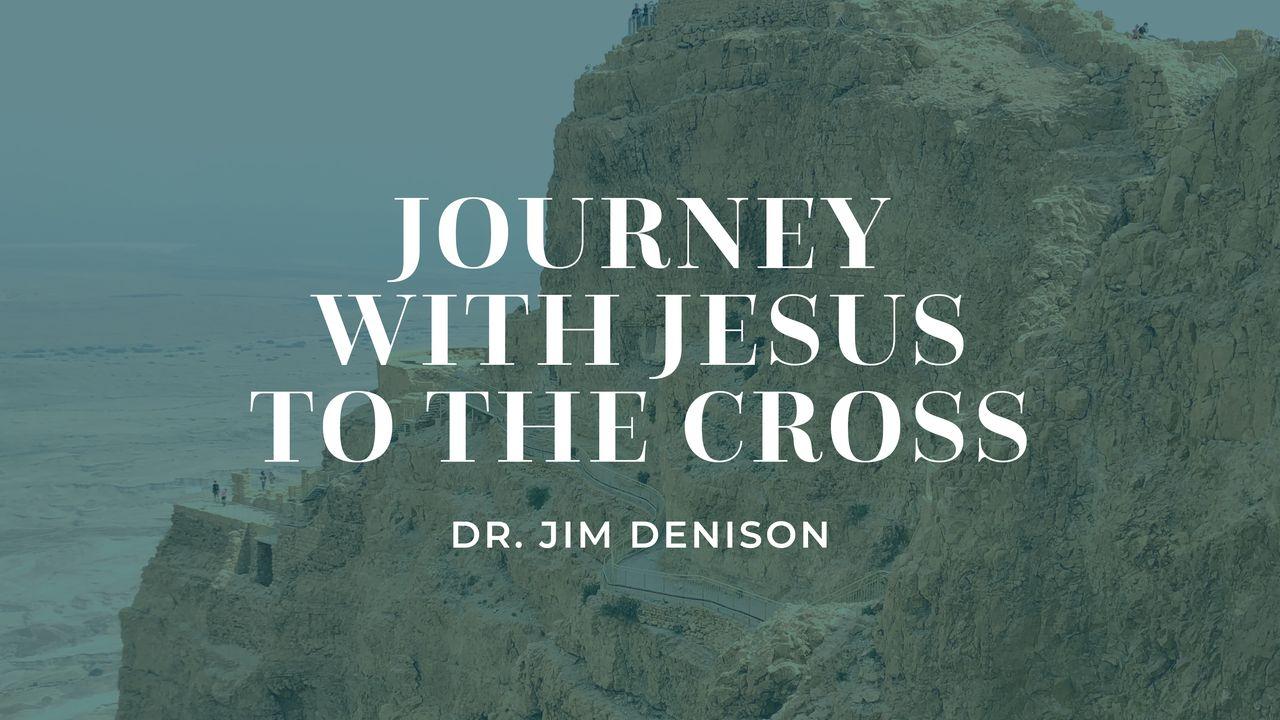
This Easter season, journey through the Holy Land with Dr. Jim Denison in this seven-day devotional, excerpted from his book To Follow in His Footsteps. You will virtually walk where Jesus walked on his journey to the cross, experiencing the sights and places that are fundamental to our faith. Start this plan six days prior to Easter Sunday.
We would like to thank Denison Forum for providing this plan. For more information, please visit: http://denisonforum.org
Related Plans

Justice for All
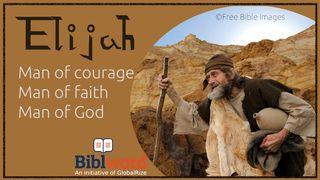
Elijah. Man of Courage, Man of Faith, Man of God.
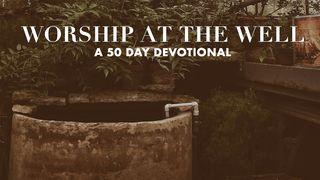
Worship at the Well

Good News...for All People!
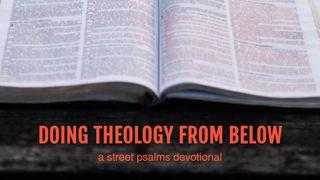
Doing Theology From Below
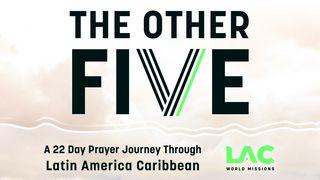
The Other Five Prayer Journey

Read the Book: July - September
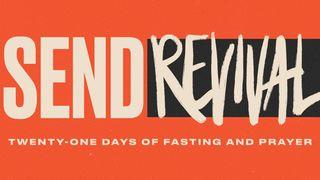
21 Days of Fasting and Prayer Devotional: Send Revival
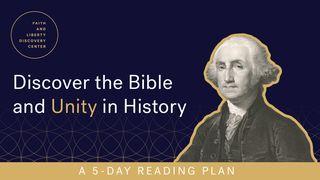
Discover the Bible and Unity in History

What's Next?
YouVersion uses cookies to personalize your experience. By using our website, you accept our use of cookies as described in our Privacy Policy
What Was the Crucifixion of Jesus? Facts about His Death on the Cross

“Finally Pilate handed him over to them to be crucified.” John 19:16
The Crucifixion of Jesus is the cornerstone of the Christian faith. All of Scripture leads up to this pinnacle moment in the history of humanity. Jesus Christ, the Son of God, gave His life in order to defeat the deadly consequences of sin . . . once and for all. He made a way for us to stand in the presence of the Father, the One True God, and to live with Him for eternity in heaven. Through the most painful death, came the greatest gift, our salvation through the Messiah. We honor the memory of Jesus’ death on Good Friday of Holy Week and celebrate His resurrection on Easter Sunday .
What Does Crucifixion Mean?
Crucifixion is a death sentence, a nailing or tying of the hands and feet to a wooden beam and being left to hang there until death by exhaustion or asphyxiation. The crucifixion Jesus endured was even more brutal than the typical punishment for criminals. He was given a crown of thorns, beaten along the way, mocked and humiliated. Sometimes the legs of the criminals are broken to speed up the process, but Christ was pierced in the side and determined to be dead already so His legs were not broken . While a crucifixion was an execution, it was also a humiliation, by making the condemned as vulnerable as possible.
Jesus’ death on the cross symbolizes the Christian call to “take up our cross” daily and choose God each day by the power of the Holy Spirit. Crucifixion is also defined as unjust treatment or persecution , aptly defining what it often costs us in this life to follow Christ. Paul significantly stated, “I have been crucified with Christ and I no longer live, but Christ lives in me. The life I now live in the body, I live by faith in the Son of God, who loved me and gave himself for me” ( Galatians 2:20 ).
“The cross is as central to living the Christian life as it is to entering into it.” - Baker’s Evangelical Dictionary of Biblical Theology
Who Is Jesus?
Jesus represents one person of the Triune God, God’s only Son. He chose to come to earth, according to God’s great plan to restore and redeem His people, who throughout the Old Testament, failed to keep His laws due to the fallen and sinful nature put in place when Adam and Even succumbed to the devil’s temptation in the Garden of Eden. He walked the earth for 33 years living a sinless life, was crucified, died, was burried, and rose from the dead. He is now seated at the right hand of the Father, where He will remain until He returns, a time which only God knows.
"We believe in a Christ-centered Bible. The salvation that was expected in the Old Testament is exhibited in the Gospels and then explained in the rest of the New Testament.” - BibleStudyTools.com, “Jesus Through the Bible.”
“In the beginning was the Word, and the Word was with God, and the Word was God. He was with God in the beginning. Through him all things were made; without him nothing was made that has been made. In him was life, and that life was the light of all mankind. The light shines in the darkness, and the darkness has not overcome it.” John 1:1-5
The Gospel of John recorded more than just the events of Jesus’ life, revealing more of who He was. There are seven statements in his gospel in which Jesus, Himself, tells us who He is:
- “I am the bread of life.” John 6:35-48
- “I am the light of the world.” John 8:12 ; John 9:5
- “I am the gate.” John 10:7
- “I am the good shepherd.” John 10:11-14
- “I am the resurrection and the life.” John 11:25
- “I am the way, the truth and the life.” John 14:6
- “I am the vine.” John 15:1-5
“Once you begin to understand that Jesus is in fact God, and that he is in a unique and exclusive relationship with God the Father, you also begin to understand that if you want to know the God who created you, then you need to know Jesus. There’s just no other way.” - Greg Gilbert, “Who is Jesus?”
5 Things to Know about the Life and Ministry of Jesus
1. He redefined love.
“For God so loved the world that he gave his one and only Son, that whoever believes in him shall not perish but have eternal life.” John 3:16
It was out of love for us God sent His Son, and love that compelled Christ to accept the fate of the cross. His sacrificial love redefined the human understanding of the word. Love was the main focus of Jesus’ ministry on earth. He redefined acceptance, paying attention to those on the fringes of life. He healed beyond our human capacity to understand, and granted forgiveness for sins which had been deemed unforgivable. He left us with a new command:
“A new command I give you: Love one another. As I have loved you, so you must you love one another.” John 13:34
2. Jesus was fully man.
Christ was born in a manger in Bethlehem, to the virgin mother, Mary and His earthly father Joseph. Jesus’ ministry didn’t begin until He was 30 years old ( Luke 3:23 ). Jesus had to grow up physically, mentally, and spiritually, just like us. Though He was sinless, He was still fully human . He had siblings, friends, and parents He obeyed. Our Savior truly felt all of the growing pains of humanity.
“No human, not even the God-man himself, skips the growth and maturation process, and no true growth is one-dimensional, but both toward God and man, with all the attendant pains.” - David Mathis, “How God Became a Man. What Jesus Did for Thirty Years.”
3. He came to teach the truth.
“Simon and those who were with him searched for him, and they found him and said to him, ‘Everyone is looking for you.’ And he said to them, ‘Let us go on to the next towns, that I may preach there also, for that is why I came.” Mark 1:35-39
Jesus came to earth to speak the truth about God and Himself. The Truth sets us free, and He came not only to proclaim who He was but how who He is can save us. “A miracle does no ultimate good for the people who receive it if they reject the gospel.” - Ligonier, “The Purpose of Jesus’ Ministry.”
Christians are challenged to live mission minded lives. The mission is the Gospel:
“‘All authority in heaven and on earth has been given to me. Therefore to and make disciples of all nations, baptizing them in the name of the Father and of the Son and of the Holy Spirit, and teaching them to obey everything I have commanded you. And surely I am with you always, to the very end of the age.’” Matthew 28:16-20
4. Jesus performed miracles.
Jesus performed many miracles on earth. He changed water into wine ( John 2:1-11 ), fed five thousand with a few fish and loaves of bread ( Matthew 14:15-21 ), raised His friend Lazarus from the dead ( John 11:1-46 ), and many other signs and wonders not all of which were recorded. John said, of the miraculous things Jesus did:
“Jesus did many other things as well. If every one of them were written down, I suppose that even the whole world would not have room for the books that would be written.” John 21:25
Each miracle was incredibly personal to Jesus. He cares deeply for us, and that compassion is displayed in His earthly ministry.
“When we finish reading a miracle, we ought to pause and say, ‘Jesus, show me what this is saying about you.” - John Piper, “Interpreting the Miracles of Jesus.
Click here for more miracles performed by Jesus.
5. Jesus was baptized.
Jesus’ baptism marks the beginning of His ministry.
“As soon as Jesus was baptized, he went up out of the water. At that moment heaven was opened, and he saw the Spirit of God descending like a dove and alighting on him. And a voice from heaven said, ‘This is my Son, whom I love; with him I am well pleased.’” Matthew 3:16-17
“In baptism, by faith, we are united with Christ in his death, burial, and resurrection. Baptism dramatically portrays what happened spiritually when you received Christ: Your old self of unbelief and rebellion and idolatry died, and a new you of faith and submission and treasuring Christ came into being. That’s what you confess to the world and to heaven when you are baptized. ” - John Piper, “What is Baptism and How Important is it?”
What Does the Bible Say about the Crucifixion of Jesus?
“From that time on Jesus began to explain to his disciples that he must go to Jerusalem and suffer many things at the hands of the elders, the chief priests and the teachers of the law, and that he must be killed and on the third day be raised to life.” Matthew 16:21
The crucifixion is recorded in all four New Testament Gospels. ( Mathew 27: 1-54, Mark 15:1-40, Luke 23: 1-48, John 19:1-30) After betrayal by Judas and an unfair trial, Jesus was flogged and given a crown of thorns. A company of soldiers put a purple robe on Him to mock, spit upon, and hit Him repeatedly on the head with a staff. They stripped Him of the robe and put His clothes back on Him, then led him to Golgotha (which “means place of the skull’) to crucify Him. John’s Gospel says that Jesus carried His own cross. Other Gospels mention Simon of Cyrene carrying it for Him. He was followed by a large crowd, and many women wept for Him. Nails pierced His hands and feet. Soldiers cast lots for His clothes. But He said:
“Father, forgive them, for they do not know what they doing.” Luke 23:34
The authenticity of Jesus throughout the crucifixion illustrates the dependability of our Savior, His strength and faithfulness. The literal weight of all the sin in the world pressed upon Him as He lived through the final moments of His life on earth. His sinless life was lived and sacrificed to save ours.
Where Was Jesus Crucified?
Jesus was crucified at Golgotha, which means “place of the skull,” because so many had died there. According to the NIV Cultural Backgrounds Study Bible , executions were held outside city walls. It’s been said that Adam is buried where Christ was crucified, and well as where Abraham was willing to offer His only son Isaac as a sacrifice (naming the place Jehovah-jireh -The Lord will provide.). Matthew Henry’s Commentary states, “for as in Adam all die, so in Christ shall al be made alive.”
What Events Led to the Cross?
“It is not good work that we are going to stone you but for blasphemy, because you, being man, make yourself God.” John 10:33
Jesus was turned into the high priest and authorities by Judas, one of the twelve apostles that betrayed Jesus. Soldiers arrested Jesus. The claims Jesus made to be God infuriated the chief priests ( John 5:18 ; 8:58-59).
“ The people grumbled against Jesus for eating with sinners and tax collectors ( Luke 15:2 ), but they killed him for claiming to be the Son of God and the King of Israel.” -Kevin DeYoung, “Why Did They Crucify Jesus?”
He was brought into question by the High Priest Caiaphas ( Matthew 26:63-66 ), “who had advised the Jewish leaders that it would be good if one hand died for the people” ( John 19:14 ). He was put on trial, unfairly. Even Pilate, the authoritative figure who held the decision in his hands, wanted to release Jesus. But the crowd cheered to release another criminal instead, Barabbas, and crucify Jesus.
Click here to read all four Gospel accounts of the events that led to the cross.
5 Things to Know about the Death of Jesus
1. It was dark.
“It was now about noon, and darkness came over the whole land until three in the afternoon, for the sun stopped shining.” Luke 23:44-45
People associated darkness with disaster and judgement. God’s timing is perfect, blanketing the last hours of Christ’s life in darkness as the weight of the sin of the entire world was placed upon Him. His death was traded for ours. It could not have been an eclipse , for the moon was always full on the first day of the passover . The rightful punishment for sin is death, with Jesus took on for all of us, His sinless life on earth the sufficient sacrifice to usher us into the presence of our Father again.
2. Jesus questioned God.
“And at three in the afternoon Jesus cried out in a loud voice, ‘Eloi, Eloe, lea sabachthani?’ (which means ‘My God, my God, why have you forsaken me?).” Mark 15:34
Many prophesies were fulfilled at the cross, one being Jesus’ question to God before He gave up His spirit to the Father. But this is only one of the many prophesies fulfilled, word for word, from Psalm 22 . John Piper comments, “Jesus seems to have known that the whole of Psalm 22 , in some way or other, was about him.” Jesus wasn’t surprised, nor did He lack understanding of what was happening, but rather, He was fully bearing the abandonment of God that we deserve, and felt and suffered through all of the pain that comes along with it.
3. He took one final drink.
“Later, knowing that everything had now been finished, and so that Scripture would be fulfilled, Jesus said, ‘I am thirsty.’ A jar of wine vinegar was there, so they soaked a sponge in it, put the sponge on a stalk of the hyssop plant, and lifted it to Jesus’ lips. When he had received the drink, Jesus said, ‘It is finished.’ With that, he bowed his head and gave up his spirit.” John 19:28-30
Earlier on His journey to the cross, Jesus refused to accept a drink that would dull the pain. But now, in His final moments, He takes the drink of a commoner, from the branch of a hyssop plant which is used for Passover.
“The first wine (mixed with myrrh) was designed to dull Jesus’ pain, to keep him from having to endure the cross with full consciousness. This wine he refused. And the second (sour) wine was given to keep him ‘conscious for as long as possible,’ and thus have the effect of prolonging his pain. This is the wine Jesus drank.” - David Mathis, desiringGod.org
4. The curtain of the temple was torn from top to bottom and the earth shook.
“And when Jesus had cried out again in a loud voice, he gave up his spirit. At that moment the curtain of the temple was torn in two from top to bottom. The earth shook, the rocks split” Matthew 27:50-51
Strict rules and religious ceremonies ruled who and when if ever the area behind the temple curtain was visited, and those who wrongly presented themselves in the presence of God died immediately! For the curtain to tear in two speaks loudly of the way Jesus made for us to be in the presence of the Father. Joseph Scheumann explains, "Christ did not come to put men in a redeemable position but to redeem to himself a people.” God’s presence left the temple at Christ’s death, and now the Holy Spirit Himself resides in every believer.
5. Jesus forgave, cared for those He loved, and promised restoration in His final breaths on the cross.
“When Jesus saw his mother there, and the disciple whom he loved standing nearby, he said to her, ‘Woman, here is your son,’ and to the disciple, ‘Here is your mother.’” John 19:26-27
Jesus spent the last part of His ministry preparing His disciples to part with Him. From the cross, in the most unimaginable pain, He still acknowledges the pain His death is causing those who love Him. A mother’s love, and the journey Mary had been through being chosen to be Jesus’ mom. John, Jesus’ best earthly friend and the only disciple at the foot of the cross as Jesus died.
“‘Jesus, remember me when you come into your kingdom.’ Jesus answered him, ‘Truly I tell you, today you will be with me in paradise.’” Luke 23:42-43
Jesus came to die for the lost, and for those on the fringes of society. His kindness to the criminal hanging next to Him proves the point of His death -nothing is powerful enough to overcome it. Belief in salvation through Jesus immediately saves us, no matter what we have done, or when in life we choose to believe.
“Jesus said, ‘Father, forgive them, for they do not know what they are doing.’” Luke 23:34
Forgiveness is paramount to love. Jesus illustrated the purpose of His death in His final breaths, forgiving those that tortured and killed Him, choosing to have compassion on their ignorance and lost state. Love forgives, even when it’s not warranted, and especially when it’s undeserved, leaving hope for us all.
Historical Crucifixion
The details are graphic, and the process meant to humiliate and prolong profound pain. It was used from the 6th century to the 4th century , ending with the reign of the first Christian emperor of the Roman Empire, Constantine the Great. However, it has returned sporadically over the centuries as an extreme method of persecution.
Click here for more facts about crucifixion.
5 Things to Know about the Resurrection of Jesus
1. Jesus’ Resurrection Made a Way for Ours.
“For we know that since Christ was raised from the dead, he cannot die again; death no longer has mastery over him.” Romans 6:9
We are raised to life in Christ when we put our faith and belief in Him and His sacrifice on the cross; faith is a gift from the Holy Spirit made possible by Christ. By accepting His gift of salvation, we are free from sin! Though we will still struggle with it and remain sinners on this earth, we begin the process of sanctification in Christ throughout our lives here, and look forward to a full resurrection upon our death as we join our Savior for eternity. “Because of our connection to Jesus Christ, the one who died and rose from death, we can be confident that death will one day have no mastery over us.” - Steve Mathewson
2. Raising of the Dead.
“The earth shook, the rocks split and the tombs broke open. The bodies of many holy people who had died were raised to life. They came out of the tombs after Jesus’ resurrection and went into the holy city and appeared to many people.” Matthew 27:52-53
The only occurrence of such an event in Scripture, Matthew records the dead raised to life upon Jesus’ resurrection, their graves broken open by the shaken earth as Jesus died. There are varying opinions as to who these people were that rose, when exactly they rose, and where they went after they appeared to people in the city. Matthew Henry’s Commentary states, “It is more agreeable, both to Christ’s honor and theirs, to suppose, though we cannot prove, that they arose as Christ did, to die no more, and therefore ascended with him to glory.”
3. Jesus’ Empty Tomb Is Evidence.
“They have taken the Lord out of the tomb, and we don’t know where they have put him!” John 20:2
The evidence of the empty tomb was too strong even for the Jewish opposers of Christianity to deny. The burial story is one of the best established facts about Jesus. Intentional and perfectly timed, God made sure the evidence of the most important part of Jesus’ death, the resurrection, was undeniable.
Click here for a full explanation of the empty tomb.
4. His Disciples Were Reunited with Him on Earth.
“On the evening of that first day of the week, when the disciples were together, with the doors locked for fear of the Jewish leaders, Jesus came and stood among them and said, ‘Peace be with you!’ After he said this, he showed them his hand and side. The disciples were overjoyed when they saw the Lord.” John 20:19-20
His death and resurrection solidified all He had taught them, and launched the work they were purposed to carry out . . . spreading the Gospel news. These eye witnesses, to His life, death, and resurrection, are the foundation of the Christian faith. Before the Bible was a complete book like we carry around and log onto from our phones today, the story of Christ circulated powerfully enough to establish the entire Christian faith.
5. The Resurrection Is Real.
“Jesus said to her, ‘Mary.’ She turned to him and cried out in Aramaic, ‘Rabboni!’ (which means ‘Teacher’).” John 20:16
When Mary heard Jesus call her by name, she was able to see Him for who He was. The same is true for us, today, in the personal way we know Jesus when we are open to hearing and seeing His redemptive hand in our lives. Quite literally, Jesus disciples saw Him after His resurrection. “Jesus provided the final exclamation mark for His physical resurrection by telling the disciples that His resurrected body was comprised of ‘flesh and bones.’ ‘Touch me and see;’ He says, ‘a guest does not have flesh and bones, as you se I have’" ( Luke 24:39 ).
They touched His wounds from the cross, and He shared a meal with them, proving His full resurrection, not just that of His soul. His physical body resurrected is the cornerstone of our faith. “When Jesus rose from the dead, he confided his identity as the Son of God and his work of atonement, redemption, reconciliation and salvation. The resurrection was a real, literal, physical raising of Jesus’ body from the dead.” -Bible Study Tools Staff
Click here for verses about Jesus’ resurrection.
What Does the Crucifixion Mean for Christians Today?
“All have sinned and fall short of the glory of God.” Romans 3:23
Jesus’ death was necessary because of humanity’s sin. Colin Smith states, “Our sin required a payment but disqualified us from every fulfilling it.” It’s impossible to earn grace. We will never be good enough to stand in the presence of God. Jesus made a way. The way Jesus died granted us freedom and forgiveness (2 Cor 5:17).
Through Christ, the Holy Spirit lives in us, and we are able to communicate with God through prayer and His Word. The crucifixion was the way to eternal salvation. He took every name and every sin to the cross, and defeated death, the rightful punishment for the sin we could never outrun.
“For the wages of sin is death, but the gift of God is eternal life in Christ Jesus our Lord.” Romans 6:23
God is personal, intentional, and faithful. Every note of Jesus’ death aligned with the will of the Father. The greatest and most selfless sacrifice of all time. All for love and for all of us.
“For God so loved the world that he gave his one and only Son, that whoever believes in him shall not perish but have eternal life.” John 3:16
A Prayer in Remembrance of Jesus’ Crucifixion
Father, How amazing it is to study the death of our Savior. Soften every heart to experience the Messiah as we have here, today. Let the truth of the Living Word of God dance with the historical facts You have revealed to us as we seek answers to solidify our faith. Father, You are not afraid of our questions, and fully welcome us to lay all of our doubts at Your feet. Work in us a perfect understanding of who we are, and Whose we are . . . who You are . . . and who Jesus is. By the power of Your Holy Spirit, help us to understand and embrace Your love for us, fully. May our lives honor and glorify You, through our salvation in Christ, as we grow in our understanding of Love. Jesus, thank You for Your sacrifice. Your presence is palpable. The Living Word of God, the Good Shepherd, our Savior. Thank You for everything. May the far corners of the earth hear Your name and learn of Your love. Bless the world, and show us our place in, and our mission upon it. In Jesus’ Name, Amen.
The crucifixion of Christ is the foundation of the Christian faith. We should never be afraid to ask questions about it, or search for answers concerning it. For God, Himself, assures us, “ when you seek me with all of your heart, you will find me .” Created in His image, we are made to inquire of Him. Keep an open heart, a listening ear, and a sharp mind aligned to biblical Truth. Enjoy the journey of unlocking the miraculous resurrection of the Savior of the world. He is close . . . and He is coming back. Hallelujah! He is risen!
Photo credit: ©Getty Images/IrisImages
The Significance of Holy Week
The seven days before Jesus’ death and resurrection is one of the most important in the Christian calendar. Known as Holy Week, it is our Saviour’s final week on earth when many significant events took place, such as His triumphant entry into Jerusalem, the cleansing of the temple, the institution of the Lord’s Supper, His crucifixion and death.
This Easter, we invite you to embark on a spiritual journey of following Jesus to the cross. With insights and photos of ancient Jerusalem, you will be taking a “travel tour” to the Holy Land with our 12-day Easter devotional. As they evoke your senses, may the pages of Scripture come alive in fresh ways as you meditate on Christ’s ultimate sacrifice.
12-DAY EASTER DEVOTIONALS
Written by seminary lecturer Dr Lim Kar Yong, this 12-day Easter devotional depicts Jesus’ journey from Palm Sunday to Holy Saturday. Based on events found in the Gospel of Mark, every reading contains a Bible passage, photos, reflection questions and prayers that will help you commit yourself to God.
The readings will appear under the 12-Day Devotionals tab of this website starting from 6 April 2022. Simply bookmark this page and check back daily for each day’s passage. As you read, may you prayerfully allow these events and characters of Jesus’ time to speak into your own journey of spiritual growth and discipleship.
Start Your Journey: Day 1 2 3 4 5 6 7 8 9 10 11 12
Day 1 – the triumphant entry of jesus.
READ: MARK 11:1-11
I have led numerous study tours to the Holy Land. Without exception, there is always no lack of excitement among us when we gather at our local airport for departure.
I imagine it would have been similar for the pilgrims in Jesus’ time. Scattered all over the Mediterranean world, they had to make their pilgrimage to Jerusalem to celebrate the Passover every year, as required by the Law of Moses…
ABOUT THE AUTHOR
Rev. Dr. Lim Kar Yong is a Lecturer in New Testament Studies and Director of Postgraduate Studies at Seminari Theoloji Malaysia, Seremban. He also teaches in other seminaries in Malaysia and the region, and regularly leads study tours to the Holy Land, Greece and Turkey.
Jerusalem: A City Chosen By God
Why would the Son of God choose to die for us? We are imperfect and have fallen short of His glory. Yet, He chose to sacrifice Himself for us on the cross. In this video, you’ll see that God chose an imperfect city like Jerusalem, with poor land and water supplies, to be the capital of the Holy Land. The same way, He chooses to die for us not because of our good qualities, but out of His pure and loving grace.
The Significance of Thorns in the Bible
Jesus famously wore a crown of thorns as He was crucified on the cross. But it was a form of mockery by Roman soldiers, not a sign of honour. What do thorn bushes in the Holy Land really look like? Watch this video to see the reality of these prickly bushes. As we take this 12-day journey towards Easter, may you draw closer to God and deepen your understanding of His passion, death and resurrection.
Our mission is to make the life-changing wisdom of the Bible understandable and accessible to all.
- © 2024 Our Daily Bread Ministries

- Privacy Overview
- Strictly Necessary Cookies
This website uses cookies so that we can provide you with the best user experience possible. Cookie information is stored in your browser and performs functions such as recognising you when you return to our website and helping our team to understand which sections of the website you find most interesting and useful.
Strictly Necessary Cookie should be enabled at all times so that we can save your preferences for cookie settings.
If you disable this cookie, we will not be able to save your preferences. This means that every time you visit this website you will need to enable or disable cookies again.

- BROWSE TOPICS X
- Devotionals
- Newsletters
A Prayer to Look More Like Jesus Today - Your Daily Prayer - May 31
- Sign Up for Email

A Prayer to Look More Like Jesus Today By Emma Danzey
“Whoever says he abides in him ought to walk in the same way in which he walked.” - 1 John 2:6
Although we will never be perfect like Jesus, we are called to live like Jesus. This does not happen in our own efforts or intentions. This is a Holy Spirit filled way of living that reflects Christ in our every day. This is saying no to our flesh and sinful ways and repenting. To repent means to turn away from our sins. We acknowledge the areas that we are not obeying the Lord and we depend on Him to help us live differently. We ask the Spirit within us to set us free from the strongholds in our lives.
This is not a new prayer. People throughout the Scriptures sought after lives that honored the Lord as well.
- Deuteronomy 13:4 says, "It is the Lord your God you must follow, and him you must revere. Keep his commands and obey him; serve him and hold fast to him.”
- Ephesians 5:1-2 says, “Therefore be imitators of God, as beloved children. And walk in love, as Christ loved us and gave himself up for us, a fragrant offering and sacrifice to God.”
- 1 Peter 2:21 says, “For to this you have been called, because Christ also suffered for you, leaving you an example, so that you might follow in his steps.”
In what ways are you not following Christ today? What is He asking you to do that you are neglecting? What is He asking you not to do that you are partaking in?
Have you ever noticed how we become like the people we choose to invest our time in? I have had friends who act and have the mannerisms of their husbands now that they have been married for a few years. I have seen it with youth or college students when they select their core group of friends. I have witnessed it in my own life in various seasons. The way that we look more like Jesus is by spending more time getting to know Him. We do this by reading His Word, praying to Him, and inviting Him into our every day.
Let's pray: Dear Jesus, Thank You for dying on the cross for our sins and resurrecting yourself to be seated at the right hand of God in glory. You are high above anything that we could imagine. Please help us to realize what a great sacrifice you made on our behalf. Jesus, please enable us to look more like You today. We confess that we are a mess. We were once lost and we are now found. We are your children when we have accepted You as Savior, but that does not mean that we do not wander or struggle. Please give us the strength to walk in Your ways. Help us to repent from our sins and every evil in our hearts, minds, and actions. Give us the ability to live by the fruit of Your Spirit in us. Give us the power to pick up our crosses and follow You. Remind us that Your yoke is easy, and Your burden is light. Thank You for taking our place on the cross. Whether we go out and stay in our homes, whether we have a great day or a horrible one, leads us to live out lives that reflect and point to Your greatness. Help everyone around us to see You shining in our every day lives. May we be witnesses of Your gospel. On top of praying about looking more like You, we need to ask You to help us seek You. You say in Jeremiah 29:13 , “You will seek me and find me when you seek me with all your heart.” We will know You more when we seek You greater than we do right now. We will love You more every moment when we learn more about You and Your sacrifice for us. You are the One who has the power to change us. You can give us the desire to pursue Yourself even when we do not feel like it. You can empower us to follow You even on days when we are pressed and challenged by the world and our enemy, the devil. Jesus, You are worthy of our pursuit and of our entire lives. We surrender to You and dedicate today to following You. Amen.
Photo credit: ©Getty/shuang paul wang

Teach Us to Pray is a FREE prayer podcast hosted by iBelieve writer Christina Patterson. Each week, she gives you practical, real-life tips on how to grow your faith and relationship with God through the power of prayer. To listen to her episode on What to Pray in the Morning for a Worry-Free Day, click below!

Now that you've prayed, are you in need of someone to pray for YOU? Click the button below!

Visit iBelieve.com for more inspiring prayer content.
Read More Your Daily Prayer
- A Prayer for Confidence When Uncertainty, Insecurity, or Timidity Hits - Your Daily Prayer - June 3 Jun 03, 2024
- A Prayer for When You Doubt God's Work in Your Life - Your Daily Prayer - June 2 Jun 02, 2024
- A Prayer When it Feels Like You're Always in Conflict - Your Daily Prayer - June 1 Jun 01, 2024
- A Prayer for When God's Great Things Feel Small for You - Your Daily Prayer - May 30 May 30, 2024
Editor's Picks

Popular Today

- Privacy Policy
- Terms of Use
- Crosswalk App
- California - Do Not Sell My Personal Information
- California - CCPA Notice

- [ June 2, 2024 ] Pope Francis joins in Corpus Christi celebration in Rome for first time in years News Briefs
- [ June 2, 2024 ] Pope Francis: In the Eucharist, Jesus offers himself for the world News Briefs
- [ June 2, 2024 ] Jersey Shore children encounter Jesus at stop on National Eucharistic Pilgrimage News Briefs
- [ June 2, 2024 ] Pilgrims of hope amid crisis: Archbishop Fisichella on the 2025 Jubilee News Briefs
- [ June 2, 2024 ] Puerto Rico bishops conference issues 2024 election reflection News Briefs

The Bible and the Body and Blood of Christ
On the Readings for Sunday, June 2, 2024, The Solemnity of the Most Holy Body and Blood of Christ (Corpus Christi)
June 1, 2024 Carl E. Olson The Dispatch 8 Print

Readings: • Ex 24:3-8 • Psa 116:12-13, 15-16, 17-18 • Heb 9:11-15 • Mk 14:12-16, 22-26
Over the years I’ve written several times about the centrality of the Eucharist in the decision made by my wife and I when we decided to become Catholic. Our recognition, by God’s grace, of the Body and Blood of Jesus Christ in the Blessed Sacrament was not sudden; I would be hard-pressed to think of an exact moment when I realized, “The Eucharist really is Jesus!”
Rather, it was a long and rather steady process.
Reflecting on it these many years later—we entered the Church in 1997—I liken it to the gradual and mysterious recognition of my love for the woman who has now been my wife for 21 years this week. There was, of course, the initial spark of attraction, followed by the sort of relational dance—awkward, exciting, confusing—that many couples go through as they embark on a courtship. There were conversations, questions, and time spent thinking about each other. And when it finally dawned on us that we did, in fact, love each other, it was as though the wonderful fact had been staring us in the face for many weeks and months before we “got it”!
My recognition of the Eucharist was set in motion when I was a young boy, a Fundamentalist who knew nothing about the Eucharist or the Catholic Church. But I was taught to love Jesus and the Bible. And who better to bring me to the Catholic Church than the Incarnate Word who founded the Church and the written Word of God gifted to the Church by the Holy Spirit? While growing up I read and heard many of the key stories in the Old Testament, including that of Moses leading the people out of Egypt and being given the Law at Mount Sinai. I was familiar with the “blood of the covenant”, and the establishment of animal sacrifices for the forgiveness of sins.
Later, while in Bible college as a young Evangelical, I came to see more clearly how Jesus is the new Moses, sent by God to save his people from slavery to sin, and that as author of the Law, Jesus was able to perfectly fulfill the Law (see Mt 5:17-18). One of my final classes (bearing the clinical-sounding name “Bible Synthesis”) explored both the continuity and differences between the Old and New Covenants. We learned that while Moses was the direct mediator between God and the people, able to speak directly to God and to relay “all the words and ordinances of the LORD,” Jesus is the perfect, final and everlasting mediator between God and all men. Moses was able, as God’s mediator and prophet, to play a vital role in God’s plan of salvation, overseeing the establishment of the covenant at Sinai. But it was only Christ, fully divine and fully human, who could establish a new and eternal covenant through his life, Passion, death, and Resurrection.
As the Epistle to the Hebrews relates with profound theological insight, Christ’s priesthood does not involve the sacrifice of animals in the Temple, but offering himself—the new Temple—as the perfect, unblemished sacrifice. He is the Lamb of God whose body was broken and whose blood was shed on the Cross. Risen from the grave and seated in glory, he now offers his flesh and blood, soul, and divinity, in the Eucharist.
Scripture, then, was essential in my education in the Eucharist. But I also had to sit at the feet of the Church, listening to her supernatural wisdom. If the Church is the mystical body of Christ, as I was also seeing, then the Church is able to instruct about the Body and Blood of her head, Jesus Christ. The saints, doctors, and teaching office of the Church gave witness.
“For in the figure of bread His Body is given to you,” stated St. Cyril of Jerusalem, “and in the figure of wine His Blood, that by partaking of the Body and Blood of Christ you may become the same body and blood with him.”
(This “Opening the Word” column originally appeared in the June 10, 2012 edition of Our Sunday Visitor newspaper.)
If you value the news and views Catholic World Report provides, please consider donating to support our efforts. Your contribution will help us continue to make CWR available to all readers worldwide for free, without a subscription. Thank you for your generosity!
Click here for more information on donating to CWR. Click here to sign up for our newsletter.

Thank you for coming home. A witness and good story to share. God bless
The story of a wonderful journey in grace. Thank you.
Christians need to be given a greater understanding of the meaning of the New Covenant, that was introduced by Jeremiah at Jer 31.31-34. And the egregious mistranslation of the Greek word “naos,” that means “sanctuary,” (and not “temple”), needs to be clarified and corrected in modern Bibles. Christ was sanctified. His body is a sanctuary. Hid blood represents the New Covenant (Lk 22.20).
For me, one of the greatest foundations of the Eucharist as the true presence of the body and blood of Christ is Chapter 6 of John’s Gospel, ‘the bread of life discourse.’ In this chapter Jesus repeats five times that “unless you eat my flesh and drink my blood, you have no life in you.” We also read in this same chapter that many of his disciples, after hearing this, “returned to their former way of life and no longer accompanied him”. If Jesus only meant this symbolically, as a prophet and minister of the truth, he would have had to call them back by indicating the symbolic nature of his declaration. Note that Jesus even asked the Apostles “do you also want to leave.” Peter, in all his wisdom, answered, “Master to whom shall we go? You have the words of eternal life.”
Moses took half of the blood and put it in large bowls; the other half he splashed on the altar. Then he took the blood and sprinkled it on the people, saying this is the blood of the covenant. Today this excerpt from the breviary for the office of readings was repeated in the first reading during the Mass of Corpus Christi. This occurs only in the B cycle every three years. Blood, the pouring out of the blood of young bulls as a peace offering we know prefigured the pouring out of Christ’s blood from the cross as a peace offering on our behalf. Christ, the unmarred victim offered as a fragrant oblation to the Father. All the blood sacrifices of the old testament are fulfilled in the pouring out of the divine victim’s life’s blood that we might be forgiven. The condition in the reading by Moses from the book of the covenant, to which the people answered, Everything that the Lord has said, we will heed and do. That is to say, to follow the prescription as prescribed by the divine doctor for our recovery from the deadly disease of sin. Sin can only be redeemed by the shedding of blood because it is in deadly opposition to life itself, who is Christ as revealed to Martha at the death of Lazarus. Blood in this greatest of all miracles is life in the fullest sense. Saint Thomas Aquinas in the second breviary office of readings today speaks first of the blood that achieves our reconciliation with the Father, and that “so great a gift would abide with us forever, he left his body as food and his blood as drink for the faithful to consume. O precious and wonderful banquet, that brings us salvation and contains all sweetness! No one can fully express the sweetness of this sacrament, in which spiritual delight is tasted at its very source” (excerpted from Opusculum 57 in festo Corporis Christi in the breviary). Aquinas teaches us of the permanence of our sensual nature perfected spiritually through this greatest of sacraments, the foretaste of our seeing God face to face in the beatific vision. When our human nature will be transformed into the likeness of the very source in which we find the most exstatic love.
On “the continuity and differences between the Old and New Covenants”…
While there is a kind of continuity, to help us begin to “get” the reality of the Holy Eucharist, there is also (the discontinuity of) something entirely new… Yes, the Old Testament covenant was a bit more than a standard contract, as between God and the Chosen People. The spilling of the blood on both the altar and on the people established a kind of kinship with God. Splashed with the very same blood. Not only a contract, but a chosen family…
But the New Covenant is more than the most recent and final update. By the Eucharist we are actually incorporated into the divine life of Jesus Christ as the Second Person of the Triune One. So, more than the Old Testament kinship even, but instead, to be actually gifted sacramentally into the very divine life. No longer only an annual cleansing or, today, only a shared memorial, but the very continuation and extension (!) of the once-and-for-all-time self-donation by Christ on Calvary.
Benedict/Ratzinger notes this difference:
“…the Old Testament is described, not by the word ‘communion,’ but by the word covenant (berith). This terminology guarantees that God, who alone can establish the relation of his creature to himself, remains exalted; this term includes the distance that is maintained in the relationship. Some exegetes, on account of this, hold it to be wrong to translate berith with ‘covenant,’ because this word presupposes a certain equality between the partners in the ‘covenant’ that can never be, according to the Old Testament view, in the relationship between God and man [….] the Old Testament knows nothing of any ‘communion’ (chaburah) between God and man; the New Testament is this communion, in and through the person of the incarnate Jesus Christ” (Ratzinger, Pilgrim Fellowship of Faith, San Francisco, 2005, p. 74.)
2 Trackbacks / Pingbacks
- The Bible and the Eucharist -
- The Bible and the Body and Blood of Christ – Via Nova
Leave a Reply Cancel reply
Your email address will not be published.
All comments posted at Catholic World Report are moderated. While vigorous debate is welcome and encouraged, please note that in the interest of maintaining a civilized and helpful level of discussion, comments containing obscene language or personal attacks—or those that are deemed by the editors to be needlessly combative or inflammatory—will not be published. Thank you.
© Catholic World Report
You can see how this popup was set up in our step-by-step guide: https://wppopupmaker.com/guides/auto-opening-announcement-popups/
Sign up to receive a weekly email with news, analysis, and commentary from a voice you can trust!
Email Frequency

IMAGES
VIDEO
COMMENTS
Jesus' Journey to the Cross was Difficult. First of all, it should be acknowledge that Jesus' journey the cross was difficult. This might seem so obvious that it is hardly worth saying, but I think it is good that we consider carefully the difficulty of Jesus' journey. I suppose it can be said that the whole of Jesus' life was difficult.
Jesus Is Nailed to a Cross -(Matthew 27.31-44; Mark 15.21-32; John 19.17-27)As Jesus was being led away, some soldiers grabbed hold of a man named Simon who was from Cyrene. He was coming in from the fields, but they put the cross on him and made him carry it behind Jesus. A large crowd was following Jesus, and in the crowd a lot of women were crying and weeping for him. Jesus turned to the ...
Our Savior went willingly to His torture and death. He knew He'd die for us. Though His soul was troubled, Jesus was still willing to die for us, calling it His purpose, and even saying, "Father, glorify your name" ( John 12:27-28 ). It wasn't easy for Jesus to die on the cross. Yet he did. Scripture tells us Jesus understood His death ...
Meditating on the betrayal and arrest of Jesus in the garden during Lent invites a contemplative journey into the depths of Christ's sacrificial love and human vulnerability. In Matthew 26:47-56, the poignant scene unfolds as Judas identifies Jesus with a kiss, leading to His arrest by a cohort of soldiers. The injustice of betrayal by a ...
Compiled by Haug and Walker, Journey to the Cross is a free devotional guide for the season of Lent. Each week focuses on a different theme (e.g., repentance, humility, suffering, lament, sacrifice, death), and each day follows a distinct pattern: Call to Worship, Confession, Contemplation, and Closing Prayer. "Lent is about Jesus," the ...
Carrying his own cross, he went out to the place of the Skull (which in Aramaic is called Golgotha). There they crucified him, and with him two others—one on each side and Jesus in the middle. Pilate had a notice prepared and fastened to the cross. It read: JESUS OF NAZARETH, THE KING OF THE JEWS. Many of the Jews read this sign, for the place where Jesus was crucified was near the city, and ...
A free email devotional that guides you through God's plan for salvation from Ash Wednesday to Easter. Each week, you'll receive a portion of the Bible study series with links to helpful resources on Bible Gateway.
A Lenten devotional by Sinclair Ferguson that explores the people and events along Jesus' road to Jerusalem and the cross. Learn how to follow Jesus' example and challenge as you read Luke's Gospel and reflect on his life, death and resurrection.
An ashen cross serves as a reminder that you come from dust and to dust you shall return one day. It is also a call to "Consider yourself dead to sin and alive in Christ Jesus" (Rom. 6:11). As you begin this journey of Lent, you must start with rending your heart—tearing it from self-absorption and binding yourself (mind and devotion) to ...
Then released he Barabbas unto them: and when he had scourged Jesus, he delivered him to be crucified. Then the soldiers of the governor took Jesus into the common hall, and gathered unto him the whole band of soldiers. And they stripped him, and put on him a scarlet robe.
He predicted in Luke 18:31f ., "Behold, we are going up to Jerusalem, and everything that is written of the Son of man by the prophets will be accomplished. For he will be delivered to the Gentiles, and will be mocked and shamefully treated and spit upon; they will scourge him and kill him." When Jesus set his face to go to Jerusalem, he set ...
Our Daily Bread Ministries. PO Box 2222. Grand Rapids , MI 49501. (616) 974-2210. [email protected]. SUBSCRIBE NOW to get Ministry email updates. Please provide your first name. Please provide your last name. Please provide a valid email address.
The Scriptures about the Via Dolorosa are clear, simple, and yet profound. On the road to the cross, God's glory was on display; the plan of salvation was being worked out, and the love of Jesus for you and me was demonstrated: "Christ also suffered once for sins, the just for the unjust, that He might bring us to God" ( 1 Pet. 3:18 ).
Explore the biblical account of the crucifixion of Jesus, a significant event in Christian history, with a timeline of events and corresponding Scripture verses. Learn about the last words, the inscription, the criminals, and the promise of paradise for the repentant thief.
This plan will guide you through an inductive study of Jesus' journey to the cross, beginning with the triumphal entry into Jerusalem. Grab a notebook to jot down your thoughts as you are led through a process of (1) observing the events of Passion Week, (2) interpreting the original message to the church in Rome, and (3) applying the Easter story's timeless truths to your life today.
Use this Holy Week timeline to walk along with Jesus Christ on his journey to the cross, from his triumphal entry into Jerusalem to his resurrection. ... "The Scriptures declare, 'My Temple will be a house of prayer,' but you have turned it into a den of thieves" (Luke 19:46). On Monday evening Jesus stayed in Bethany again, probably in the ...
A sermon based on Philippians 2:1-14 that explores the attitude, humility, and suffering of Jesus on his way to the cross. The sermon challenges believers to surrender their rights and follow Jesus' example of brokenness and exchanged life.
The Crucifixion of Jesus. 26 As the soldiers led him away, they seized Simon from Cyrene, who was on his way in from the country, and put the cross on him and made him carry it behind Jesus. 27 A large number of people followed him, including women who mourned and wailed for him. 28 Jesus turned and said to them, "Daughters of Jerusalem, do ...
Whoever does not carry his own cross and come after Me cannot be My disciple. Mark 15:30. Verse Concepts. save Yourself, and come down from the cross!". Matthew 16:24. Verse Concepts. Then Jesus said to His disciples, "If anyone wishes to come after Me, he must deny himself, and take up his cross and follow Me.
Jesus is buried. Matthew 27:57-61. Jesus is risen! Matthew 28:1-10, 16-20. To make the journey more tangible for our children, we've created a wall mural with 14 pieces, and each day we will turn over a piece until Easter. We will be praying that Jesus' amazing sacrifice resonates and compels us to worship and service during the next two weeks!
This Easter season, journey through the Holy Land with Dr. Jim Denison in this seven-day devotional, excerpted from his book To Follow in His Footsteps. You will virtually walk where Jesus walked on his journey to the cross, experiencing the sights and places that are fundamental to our faith. Start this plan six days prior to Easter Sunday.
John 19:16. The Crucifixion of Jesus is the cornerstone of the Christian faith. All of Scripture leads up to this pinnacle moment in the history of humanity. Jesus Christ, the Son of God, gave His life in order to defeat the deadly consequences of sin . . . once and for all. He made a way for us to stand in the presence of the Father, the One ...
Written by seminary lecturer Dr Lim Kar Yong, this 12-day Easter devotional depicts Jesus' journey from Palm Sunday to Holy Saturday. Based on events found in the Gospel of Mark, every reading contains a Bible passage, photos, reflection questions and prayers that will help you commit yourself to God. The readings will appear under the 12-Day ...
Dear Jesus, Thank You for dying on the cross for our sins and resurrecting yourself to be seated at the right hand of God in glory. You are high above anything that we could imagine. Please help ...
Matthew 27:38-44. King James Version. 38 Then were there two thieves crucified with him, one on the right hand, and another on the left. 39 And they that passed by reviled him, wagging their heads, 40 And saying, Thou that destroyest the temple, and buildest it in three days, save thyself. If thou be the Son of God, come down from the cross.
Later, while in Bible college as a young Evangelical, I came to see more clearly how Jesus is the new Moses, sent by God to save his people from slavery to sin, and that as author of the Law ...
2024, June 2 - Psalms Journey - Quartet in Concert 2024, June 2 - Special Guests - Psalms Journey - Gospel Quartet Ministering in Music